Care Center
Get the latest pet stories, news, tips and advice right here.
Sort & Filter
1232 results
sort by

What Are the Signs And Causes Of Diarrhea In Dogs
Read More
'Made in the USA' Dog Food: What You Need to Know
Read More
10 Fun Ways Cats Wake Up Their Owners
Read More
10 Important Health Tips for Senior Cats
Read More
10 Responsible Pet Care Tips
Read More
10 Small Dog Breeds That Don't Shed
Read More
10 Tips to Prepare for Adopting a Dog
Read More
15 Pet-Friendly Cities Ideal for a US Road Trip
Read More
25 Dog-Friendly Hiking Trails & Tips for Hiking With Your Dog
Read More
3 Ideas for Exercising Older Dogs
Read More
3 Steps to Prepare Your Apartment For a Dog
Read More
4 Incredible Rare Cat Breeds
Read More
4 Ways to Help Your Cat Maintain an Ideal Weight
Read More
5 Ideas for Indoor Exercise for Dogs
Read More
5 New Fun Things to Do With Your Cat
Read More
5 Popular Small & Toy Dog Breeds in America
Read More
5 Signs You Have a Spoiled Dog
Read More
5 Tips to Help Your Cat Exercise in Winter
Read More
6 Signs of Aging in Cats
Read More
7 Tips for Newborn Kitten Care
Read More
8 Common Health Problems in Senior Dogs
Read More
A Dog's Memories: Do They Remember Their Owners?
Read More
A Dog's Nutritional Needs From Puppy to Senior Years
Read More
A Guide for Choosing the Best Cat Carrier
Read More
A Guide to Socializing Your New Puppy
Read More
A Guide to Trimming Cat Claws
Read More
A Quick and Easy Guide to Cleaning Dog Toys
Read More
A Spider Bit Your Dog: Identifying the Bite & What You Should Do
Read More
Abyssinian
Read More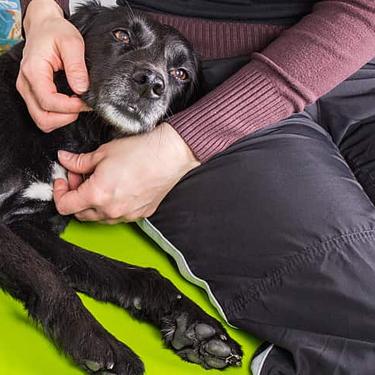
Acupuncture for Dogs: How It Can Help, What to Expect & More
Read More
Addison's Disease in Dogs: Symptoms, Diagnosis & Treatment
Read More
Adopting Dogs for Seniors: Tips for Finding the Perfect Companion
Read More
Adopting Special Needs Pets
Read More
Adopting Two Dogs at Once: Key Considerations
Read More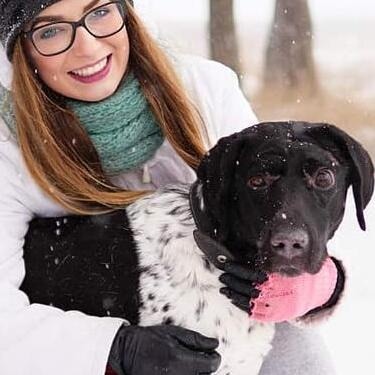
Adopting a Blind Dog or Cat: What You Need to Know
Read More
Adopting a Pet: What You Need to Know
Read More
Adopting an Adult Cat: What You Need to Know
Read More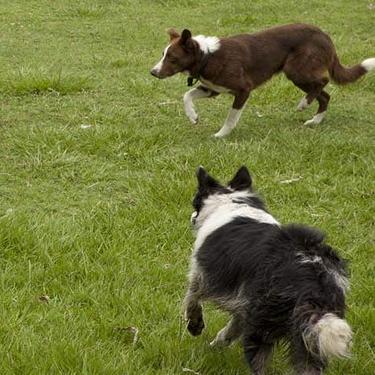
Adoption Choices: Herding Dog Breeds
Read More
Affenpinscher
Read More
Afghan Hound
Read More
Aggression in Dogs: How to Train It Out of Them
Read More
Airedale Terrier
Read More
Akbash Dog
Read More
Akita
Read More
Alaskan Klee Kai
Read More
Albino Dogs: Understanding a Rare Condition
Read More
All About Brachycephalic Dogs
Read More
All About Cancer in Cats
Read More
All About Cancer in Dogs
Read More
All About Cat Fleas
Read More
All About Cat Kneading
Read More
All About Feline Bartonella
Read More
All About Giardia in Cats
Read More
All About Kittens: A Comprehensive Guide for New Pet Parents
Read More
All About Prey Drive in Dogs
Read More
All About Your Cat's Sleeping Habits
Read More
Allergic Dermatitis & Skin Conditions in Cats: Causes & Treatments
Read More
Alternative Proteins in Dog Food: Salmon, Duck, Turkey & More
Read More
American Curl
Read More
American Eskimo Dog
Read More
American Hairless Terrier
Read More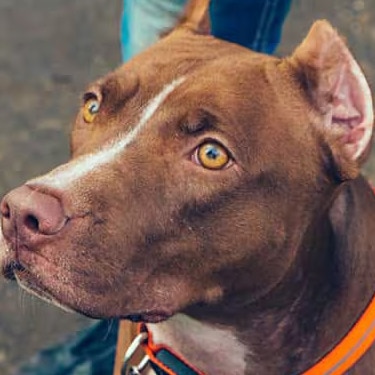
American Pit Bull Terrier
Read More
American Shorthair
Read More
American Staffordshire Terrier
Read More
American Water Spaniel
Read More
American Wirehair
Read More
An Introduction to Crate Training Your Puppy
Read More
Anemia in Cats: Causes, Treatment & Prevention
Read More
Anemia in Dogs: Signs, Treatment, Prevention & More
Read More
Angular Limb Deformities in Dogs: Types, Causes & Treatment
Read More
Antifreeze Poisoning in Cats & What to Do If Your Cat Drank It
Read More
Antioxidants
Read More
Are Bananas Safe for My Cat?
Read More
Are Carrots Good for Dogs? What You Need to Know
Read More
Are Cats Good With Kids?
Read More
Are Cats Protective of Their Humans?
Read More
Are Cucumbers and Zucchini Safe (& Healthy) for My Dog?
Read More
Are Dog Vitamins and Supplements a Good Idea for My Dog?
Read More
Are Dogs Really Color Blind?
Read More
Are Grapes & Raisins Bad for Dogs?
Read More
Are Laser Pointers Safe for Cats?
Read More
Are Olives Safe for My Cat?
Read More
Are There Dog-Safe Hair Dyes?
Read More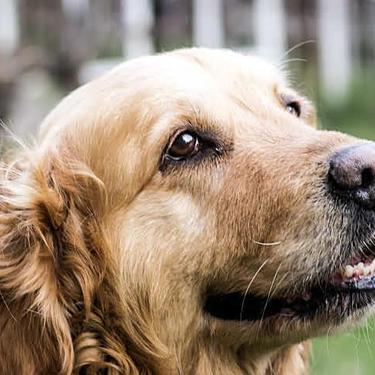
Are Tomatoes Bad for Dogs? What You Need to Know
Read More
Arthritis in Dogs: What You Need to Know
Read More
Arthritis in Your Cat: Signs, Causes & Treatment
Read More
Assessing the Proper Nutrition Your Adult Dog Needs
Read More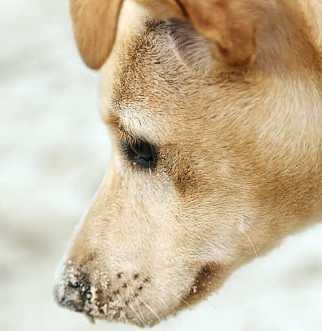
Ataxia in Dogs: Types, Symptoms & Treatment
Read More
Australian Cattle Dog
Read More
Australian Shepherd
Read More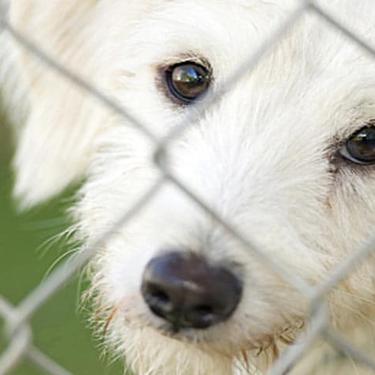
Avoiding Returning a Dog to the Animal Shelter
Read More
Balanced Dog Foods & When to Change Them
Read More
Balinese
Read More
Basenji
Read More
Basset Hound
Read More
Beagle
Read More
Bearded Collie
Read More
Beauceron
Read More
Bedlington Terrier
Read More
Belgian Malinois
Read More
Belgian Sheepdog
Read More
Benefits of Antioxidants for Dogs and Cats
Read More
Benefits of Antioxidants in Pet Food
Read More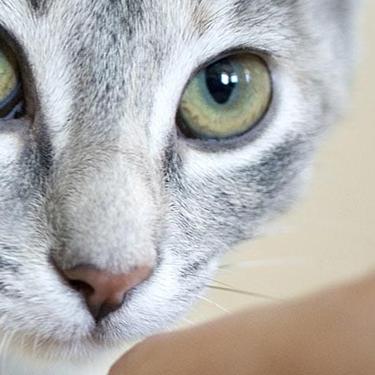
Benefits of Neutering a Cat
Read More
Benefits of Soy in Your Pet's Food
Read More
Bengal
Read More
Bernese Mountain Dog
Read More
Best Dog Breeds for Hot Weather
Read More
Best Dog Food: The Inside Scoop
Read More
Bichon Frise
Read More
Birman
Read More
Black And Tan Coonhound
Read More
Bladder & Urinary Stones in Dogs: What They Are and How They're Treated
Read More
Bladder Stones in Cats: Signs, Causes and Treatment
Read More
Blood in Dog Urine: What Should You Do?
Read More
Bloodhound
Read More
Bombay
Read More
Bonded Pair Cats and Dogs Can Be Double the Fun
Read More
Border Collie
Read More
Border Terrier
Read More
Borzoi
Read More
Boston Terrier
Read More
Bouvier Des Flandres
Read More
Boxer
Read More
Boykin Spaniel
Read More
Bracco Italiano
Read More
Brain Aging in Dogs: Symptoms & Treatment
Read More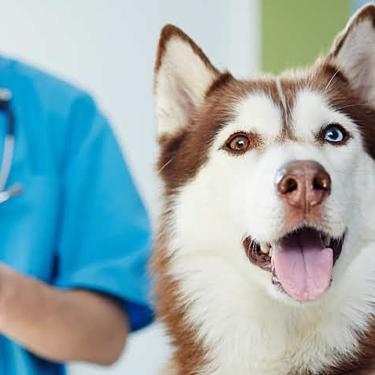
Breast Cancer in Dogs: What You Need to Know
Read More
Briard
Read More
Bringing a New Dog Home: Tips for a Warm Welcome
Read More
British Shorthair
Read More
Brittany
Read More
Bronchitis in Dogs: Causes, Symptoms and Treatment
Read More
Brown Recluse Spider Bite on a Dog: Recognizing It & What to Do
Read More
Brushing & Food: Keys to Maintaining Your Cat's Oral Health
Read More
Brussels Griffon
Read More
Building a Dog Park in Your Own Backyard
Read More
Bull Terrier
Read More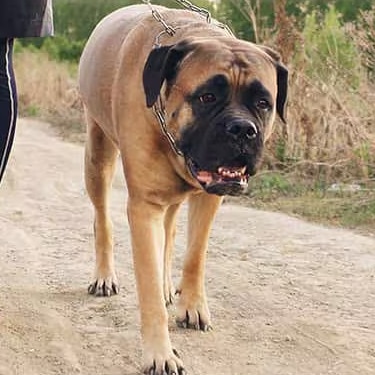
Bullmastiff
Read More
Burmese
Read More
Burmilla
Read More
Cairn Terrier
Read More
Can Cats Eat Cheese?
Read More
Can Cats Eat Eggs?
Read More
Can Cats Eat Peanut Butter?
Read More
Can Cats Eat Rice?
Read More
Can Cats Get Asthma?
Read More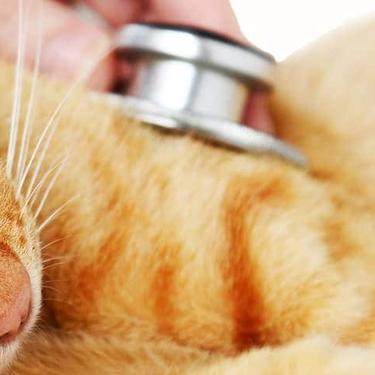
Can Cats Get Concussions?
Read More
Can Cats Get Lyme Disease?
Read More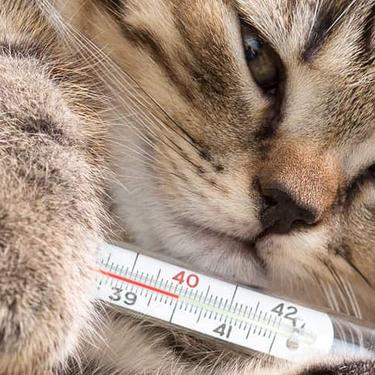
Can Cats Get the Flu or a Cold?
Read More
Can Cats Have Allergies? Signs, Common Types & Treatments
Read More
Can Cats Have Down Syndrome?
Read More
Can Cats Have Pumpkin? (& Is It Healthy?)
Read More
Can Cats Have Schizophrenia?
Read More
Can Cats See TV?
Read More
Can Cats See in the Dark? (& How Well?)
Read More
Can Dogs & Cats Have Avocados? (& Are They Safe?)
Read More
Can Dogs Actually Get Hiccups?
Read More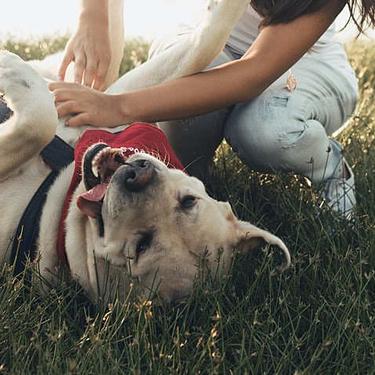
Can Dogs Be Ticklish? (& Where Are Their Spots?)
Read More
Can Dogs Be Vegan?
Read More
Can Dogs Catch a Cold or Get the Flu?
Read More
Can Dogs Drink Pool Water?
Read More
Can Dogs Eat Almonds?
Read More
Can Dogs Eat Broccoli? (and Is It Safe?)
Read More
Can Dogs Eat Brown Rice?
Read More
Can Dogs Eat Cheese?
Read More
Can Dogs Eat Eggs?
Read More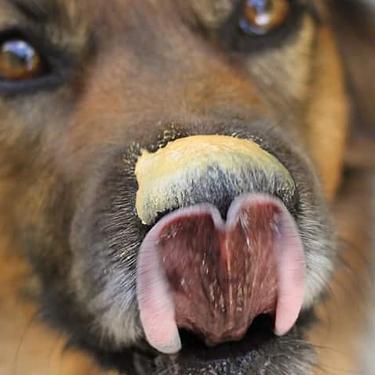
Can Dogs Eat Peanut Butter?
Read More
Can Dogs Eat Pumpkin?
Read More
Can Dogs Eat Quinoa? (and Is It Safe?)
Read More
Can Dogs Eat Soy?
Read More
Can Dogs Eat Turkey?
Read More
Can Dogs Eat Watermelon?
Read More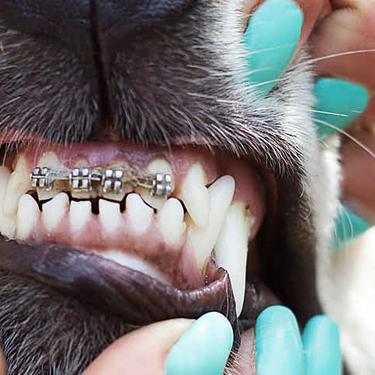
Can Dogs Get Braces? (& Are They Safe?)
Read More
Can Dogs Get Brain Freeze?
Read More
Can Dogs Get Tetanus?
Read More
Can Dogs Have Asthma?
Read More
Can Dogs Have Celery?
Read More
Can Dogs Have Cinnamon?
Read More
Can Dogs Lie to Their Owners?
Read More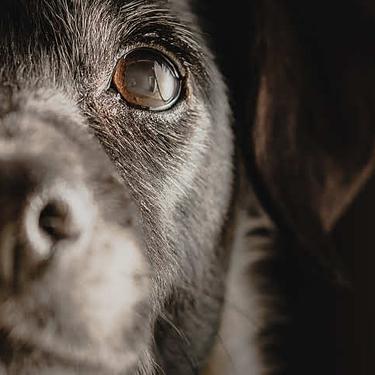
Can Dogs Recover From Lung Cancer?
Read More
Can Dogs See Ghosts?
Read More
Can Dogs See in the Dark? (& How Well?)
Read More
Can Dogs Walk in Snow? Tips for Walking Your Dog in Winter
Read More
Can Dogs and Cats Eat Butter?
Read More
Can Dogs and Cats Eat Ham?
Read More
Can I Give My Dog Melatonin?
Read More
Can Kittens Eat Adult Cat Food?
Read More
Can My Dog Eat Pizza?
Read More
Can My Dog Eat Popcorn? (& Which Flavors are Safe?)
Read More
Can My Dog Eat Spicy Food?
Read More
Can Puppies Eat Adult Dog Food?
Read More
Can You Use Dog Shampoo on Cats?
Read More
Can Your Dog Smile At You?
Read More
Canadian Eskimo Dog
Read More
Cancer in Dogs: Causes, Diagnosis & Treatments
Read More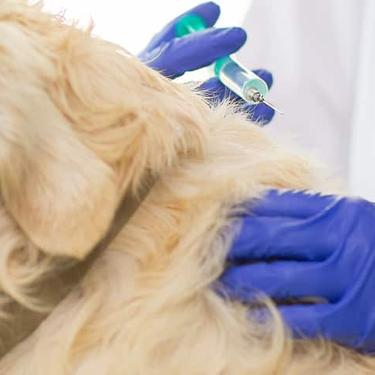
Canine Influenza Vaccine: What You Need to Know
Read More
Carbohydrates
Read More
Carbon Monoxide Poisoning in Cats: Signs & Prevention
Read More
Cardigan Welsh Corgi
Read More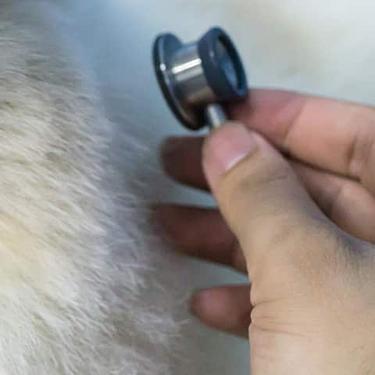
Cardiomyopathy in Dogs: What You Need to Know
Read More
Caring For Your Senior Dog's Special Needs
Read More
Caring For a Dog with Sensitive Skin
Read More
Caring for Dogs With Conjunctivitis
Read More
Caring for Your Deaf Dog: Communication and Safety Tips
Read More
Caring for Your Dog: Common Myths & Realities
Read More
Caring for a Senior Cat: The Basic Essentials
Read More
Caring for a Sick Kitten
Read More
Cat & Dog Drinking Water: Which Water Sources Are Safe for Pets?
Read More
Cat & Kitten Swollen Belly: Causes, Diagnosis and Treatment
Read More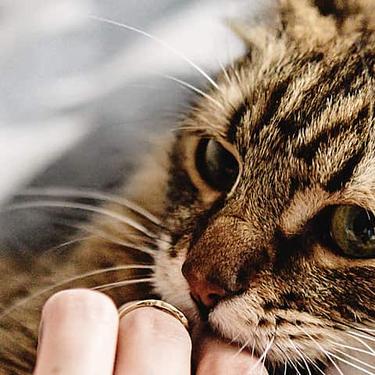
Cat Aggression: How to Calm Them Down
Read More
Cat Arthritis: Signs, Causes and Treatment
Read More
Cat Breast Cancer: What You Need to Know
Read More
Cat Bullying: What It Is & How to Stop It
Read More
Cat Carrier Backpacks: How to Choose the Right One
Read More
Cat Clicker Training for Beginners
Read More
Cat Constipation: Signs, Causes and Treatment
Read More
Cat Dandruff Causes and Solutions
Read More
Cat Dementia: More Than "Just Getting Old"
Read More
Cat Diabetes: Symptoms & Treatment
Read More
Cat Diabetes: Symptoms & Treatment
Read More
Cat Dry Nose: When to Be Concerned
Read More
Cat Ear Emotions: How Cat Ears Move With Their Mood
Read More
Cat Ear Infections: Symptoms, Diagnosis, Treatment & Prevention
Read More
Cat Eye Care: Recognizing and Preventing 6 Cat Eye Problems
Read More
Cat Food Ingredients: What Should Go Into Your Cat's Food?
Read More
Cat Food Puzzles: How They Benefit Your Cat
Read More
Cat Food Taste & Types: Does My Cat Like Their Food?
Read More
Cat Frostbite: Clinical Signs and Prevention
Read More
Cat Grass: Is it Safe for My Cat?
Read More
Cat Heart Health and Feline Heart Disease
Read More
Cat Hernia 101: Types, Diagnosis & Treatment
Read More
Cat Intestinal Blockages: Causes, Symptoms, Treatment & Prevention
Read More
Cat Jumping? How to Keep Her Paws on the Ground
Read More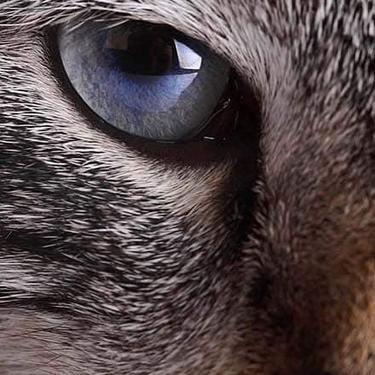
Cat Kidney Health: What You Need to Know
Read More
Cat Language: How Cats Communicate
Read More
Cat Leukemia: Symptoms, Testing and Prevention
Read More
Cat Life Hacks: Making Life Easier for You and Your Cat
Read More
Cat Life Stages: Providing the Best Care for Your Cat at Any Age
Read More
Cat Lumps After Spay or Neutering: Potential Hernia Concerns?
Read More
Cat Metabolism: How it Affects Your Feline Friend
Read More
Cat Mobility 101: Managing Cat Joint Health
Read More
Cat Mouth Cancer: Types, Symptoms, Treatment & More
Read More
Cat Napping: Why Your Cat Likes to Sleep
Read More
Cat Parents: Bringing Your New Cat Home
Read More
Cat Play: How to Keep Your Kitty Engaged
Read More
Cat Pneumonia: Signs, Diagnosis & Treatment
Read More
Cat Seizures: Causes, Symptoms & What You Should Do
Read More
Cat Skin Cancer: Types, Causes, Treatment & Prevention
Read More
Cat Tooth Extractions: What to Expect
Read More
Cat Training: How to Train Your Cat the Easy Way
Read More
Cat Travel Checklist: All the Things You Need
Read More
Cat Vision: How Do They See the World?
Read More
Cat Zoomies: Why Your Cat Gets Them & When to Call the Vet
Read More
Cat and Dog Food for Skin and Coat Health | Hill's Pet
Read More
Cat vs. Dog: Which Is the Best Pet for Me?
Read More
Cat's Upset & Sensitive Stomach: Treatments & Food Choices
Read More
Cat-Proofing Your Fish Tank: How to Protect Your Fish from a Curious Kitty
Read More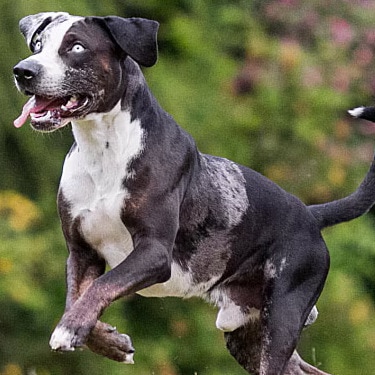
Catahoula Leopard Dog
Read More
Cataracts in Cats: What You Need to Know
Read More
Cataracts in Dogs: Symptoms, Appearance & Treatments
Read More
Cats & Ingrown Nails: Spotting Them & What You Should Do
Read More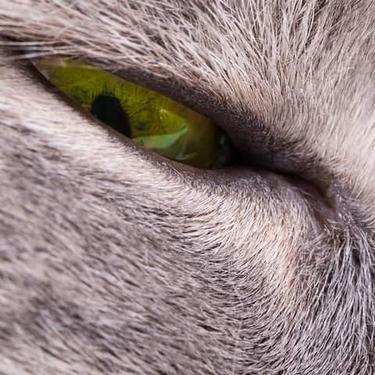
Cats & Slow Blinking: What Does it Mean?
Read More
Cats & Tuna: Is it Safe for Them?
Read More
Cats Think They're in Charge, Not You
Read More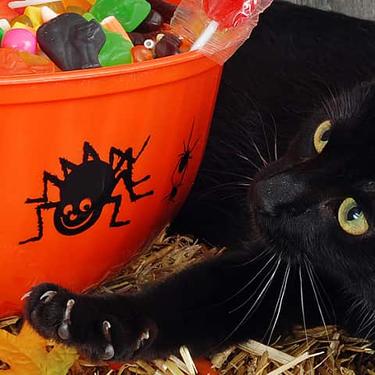
Cats and Candy: Halloween Safety for Your Cat
Read More
Cats and Christmas Trees: How to Keep Both Safe
Read More
Cats and Cucumbers: Why Are They Afraid?
Read More
Cats and Fireworks: How to Keep Your Cat Calm
Read More
Cats and Mice: What to Do If Your Cat Catches a Mouse Trophy
Read More
Causes & Signs of Dental Disease in Cats
Read More
Causes & Types of Digestive Disorders in Your Cat
Read More
Causes of Dog Vomit and What They Mean
Read More
Cavachon
Read More
Cavalier King Charles Spaniel
Read More
Change a Bored Dog into a Playful Dog with These 6 Games
Read More
Changing Cat Food: How to Do It Safely
Read More
Changing Dog Food for Your New Pup
Read More
Chantilly
Read More
Characteristics of a Healthy Puppy
Read More
Chartreaux
Read More
Cherry Eye in Dogs: Which Breeds Get It, Causes & Treatment Options
Read More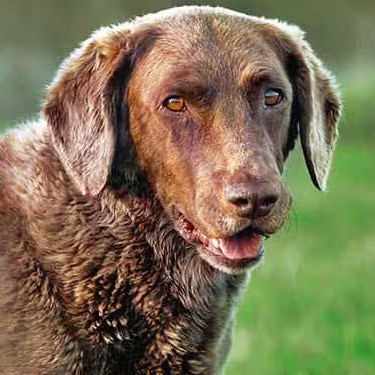
Chesapeake Bay Retriever
Read More
Chihuahua
Read More
Chinese Crested
Read More
Chinook
Read More
Chiweenies
Read More
Chondrodystrophic Dog Breeds: All About Short-Legged Dogs
Read More
Choose the Right Kitten: What You Need to Know
Read More
Choosing A Healthy Cat Food: Things You Need to Know
Read More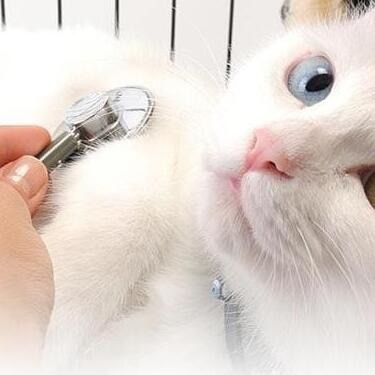
Choosing a Vet for Your Cat? Consider These Factors
Read More
Choosing the Best Cat Food: What to Look For
Read More
Choosing the Best Cats for Apartments
Read More
Choosing the Best Dog Breed for You
Read More
Choosing the Best Dog Food
Read More
Choosing the Best Kitten Food: What to Look For & Avoid
Read More
Choosing the Best Toys for Your Dog
Read More
Choosing the Right Cat Grooming Brushes & Supplies
Read More
Choosing the Right Food For Your Small Dog's Life Stages
Read More
Choosing the Right Food for Senior Cats
Read More
Choosing the Right Food for Your Adult Dog
Read More
Chow Chow
Read More
Clinical Signs of a Dog Ear Yeast Infection
Read More
Clipping Dog Nails for Puppy Pedicures
Read More
Clumber Spaniel
Read More
Coccidia in Cats: Symptoms, Treatment & Prevention
Read More
Cockapoo Dog
Read More
Cocker Spaniel
Read More
Collie Or Scottish Collie
Read More
Colorpoint Shorthair
Read More
Common Dog Behaviors Explained & the Meaning Behind Their Moods
Read More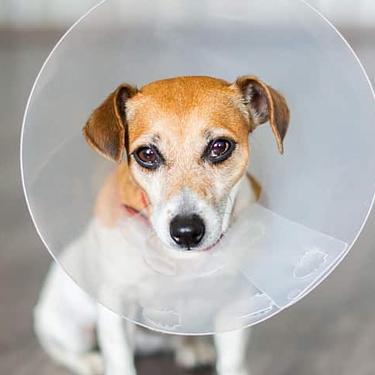
Common Dog Surgery Questions: Procedures, Anesthesia, Rehab & More
Read More
Common Health Concerns in an Overweight Cat
Read More
Common Health Concerns to Look for in Puppies
Read More
Common Health Issues in Puppies
Read More
Common Signs of a Healthy Cat
Read More
Compare Your Pet Food's Calories to Other Brands
Read More
Conjunctivitis in Cats: Signs, Causes and Treatment
Read More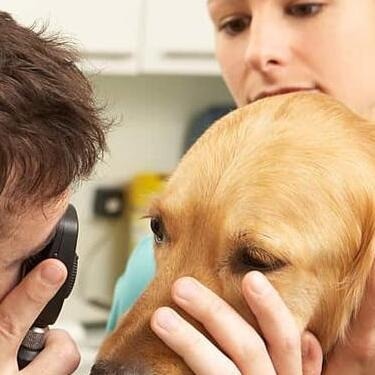
Corneal Ulcers in Dogs: Causes, Symptoms & Treatment
Read More
Cornish Rex
Read More
Crate Training an Older Dog: What You Need to Know
Read More
Curly-coated Retriever
Read More
Cyanosis & Blue Skin in Dogs: Symptoms, Treatment & More
Read More
Cymric
Read More
DIY Cat Stain & Odor Remover That Actually Works
Read More
DIY Cat Toys Your Feline Friend Will Love
Read More
Dachshund
Read More
Dalmatian
Read More
Dandie Dinmont Terrier
Read More
Dangerous Plants for Cats: Holiday Edition
Read More
Dangers of Raw Diets for Dogs
Read More
Dealing With Dog Mange
Read More
Dealing With Ear & Skin Yeast Infections in Dogs
Read More
Dealing With a Dog Peeing on the Lawn
Read More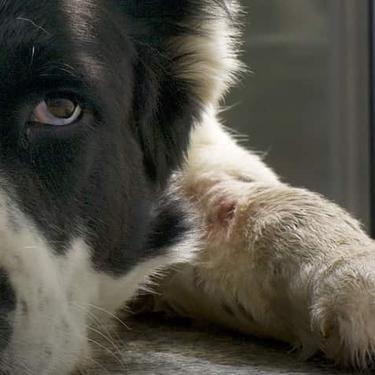
Dealing with Dog Digestive Problems
Read More
Dealing with Tapeworms in Cats
Read More
Dealing with a Cat That's a Picky Eater
Read More
Debunking Myths: Is Wet Food Bad for Cats' Teeth?
Read More
Debunking Myths: Is Wet Food Bad for Cats' Teeth?
Read More
Deciding if a Natural Food is Best for Your Cat
Read More
Deciphering Your Kitten's Behavior & Body Language
Read More
Dental Disease in Dogs: Symptoms & Treatment
Read More
Determining Your Cat's Breed
Read More
Devon Rex
Read More
Diabetes in Cats: Causes, Signs & Treatments
Read More
Diabetes in Dogs: What You Need to Know
Read More
Diabetes in Dogs: What You Need to Know
Read More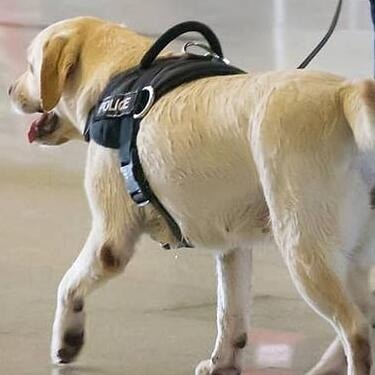
Diabetic Alert Dogs: How They Help Their Owners
Read More
Diet Considerations for Pregnant & Nursing Cats
Read More
Differences Between Male and Female Cats
Read More
Distemper in Dogs: Symptoms, Diagnosis & Treatment
Read More
Do Cats Fart?
Read More
Do Cats Have Periods?
Read More
Do Cats Like Music?
Read More
Do Cats Like to Be Petted?
Read More
Do Cats Really Have Nine Lives?
Read More
Do Cats Sweat or Pant?
Read More
Do Cats Understand Mirrors?
Read More
Do Cats Understand Words?
Read More
Do Dogs & Cats Have Empathy?
Read More
Do Dogs Feel Guilt or Shame?
Read More
Do Dogs Get Jealous?
Read More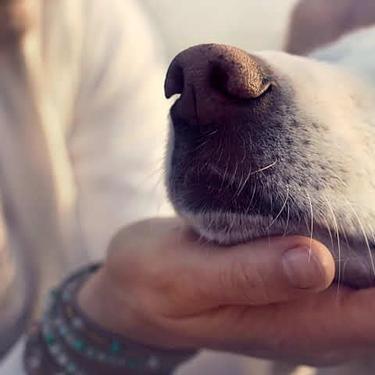
Do Dogs Have Best Friends?
Read More
Do Dogs Have Periods?
Read More
Do Dogs Need Shoes & Booties in Summer Heat?
Read More
Do Dogs Sweat? How Your Dog Keeps Their Cool
Read More
Do Dogs and Cats have Belly Buttons?
Read More
Do Hypoallergenic Cat Breeds Exist? (& Which Breeds Shed the Least?)
Read More
Do I Have Time for a Dog?
Read More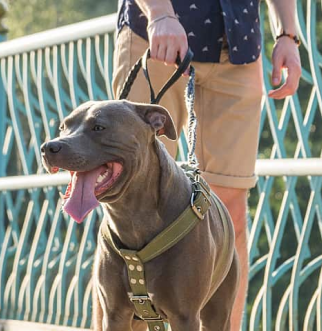
Do Male Dogs Go Into Heat?
Read More
Do Puppies Need All These Vaccines?
Read More
Do's and Don'ts for Disciplining a Cat
Read More
Do's and Don'ts of Disciplining Dogs
Read More
Doberman
Read More
Does My Cat Have Dry Skin?
Read More
Does My Cat Have a Broken Leg? How to Tell (& How It Could've Happened)
Read More
Does My Dog Have a Bruise?
Read More
Does My Dog Have a Food Allergy?
Read More
Does My Dog Like to be Petted?
Read More
Does My Dog Need A Winter Coat?
Read More
Does My Pet Hate Me?
Read More
Does Shaving a Pet for Summer Keep Them Cooler?
Read More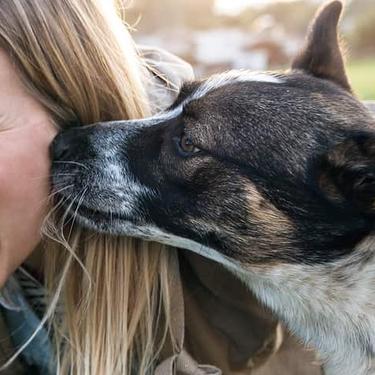
Dog Bad Breath: What Could Be the Cause?
Read More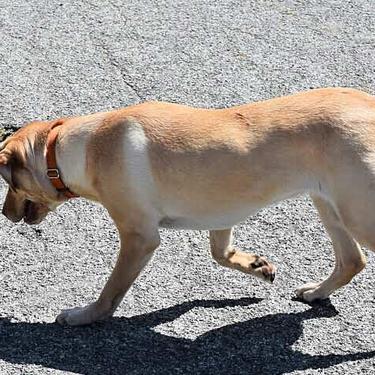
Dog Bitten by a Snake? Clinical Symptoms & What You Should Do
Read More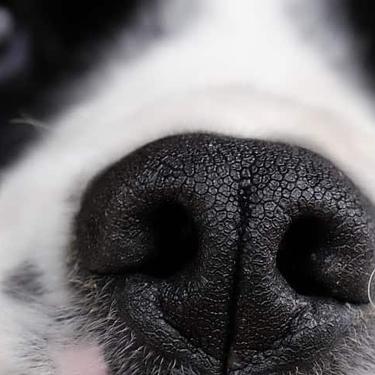
Dog Boops! Does Your Dog Actually Enjoy Them?
Read More
Dog Breeds That Can't Swim & Why
Read More
Dog Carrier Bags: What You Need to Know
Read More
Dog Constipation: Signs, Causes and Treatment
Read More
Dog Dandruff: Facts, Prevention & Treatment
Read More
Dog Depression: How to Tell If Your Dog Has the Blues
Read More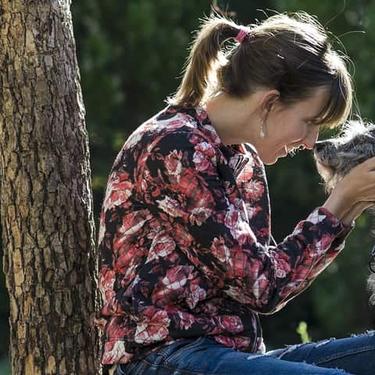
Dog Devotion: Shining Examples of Dog Loyalty
Read More
Dog Dewclaws: What Are They?
Read More
Dog Dry Mouth: How Xerostomia Affects Your Dog
Read More
Dog Ear Cropping, Tail Docking and Other Cosmetic Canine Surgeries to Avoid
Read More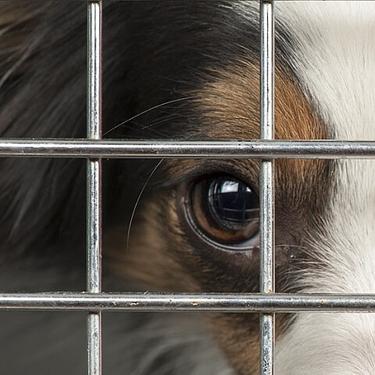
Dog Enclosures: How to Keep Your Dog in a Safe Area
Read More
Dog Eye Boogers, Goop & Gunk: When Should You Be Concerned?
Read More
Dog Food Taste & Types: Does My Dog Like Their Food?
Read More
Dog Genetics: Nutrigenomics and the Power of Epigenetics
Read More
Dog Goggles: Does My Pup Need Them?
Read More
Dog Jumping: Why They Jump & How to Train Them Not To
Read More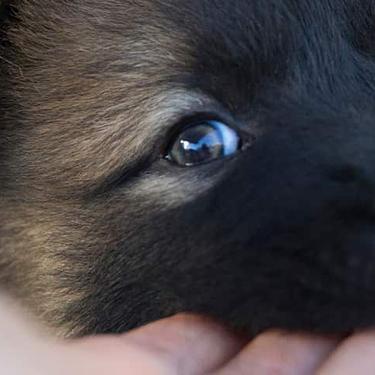
Dog Nipping & Puppy Play Biting
Read More
Dog Not Pooping or Peeing?
Read More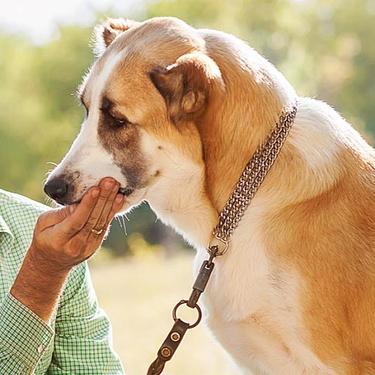
Dog Park Rules: Do's and Don'ts
Read More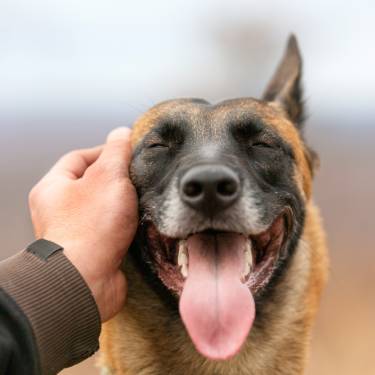
Dog Poop Color Chart and Other Characteristics: A Comprehensive Guide to Stool
Read More
Dog Rabies: Symptoms, Transmission to Humans & Vaccinations
Read More
Dog Scooting & Recognizing Anal Gland Problems
Read More
Dog Scratch Reflex: Why Dogs Kick Their Legs During Belly Rubs
Read More
Dog Skin Tags: What You Need to Know
Read More
Dog Snow Nose: Why Dogs' Noses Turn Pink in the Winter
Read More
Dog Sprained Leg: Signs, Diagnosis and Treatment
Read More
Dog Tail Signs: What That Wagging Means
Read More
Dog Traits & Personalities for the Seven Breed Classes
Read More
Dog Treats: What to Get & When to Give Them
Read More
Dog Warts: What are They & What Causes Them?
Read More
Dog and Cat Urine Crystals: What You Need to Know
Read More
Dogs & Cat Toothpaste, Toothbrushes & Brushing Tips
Read More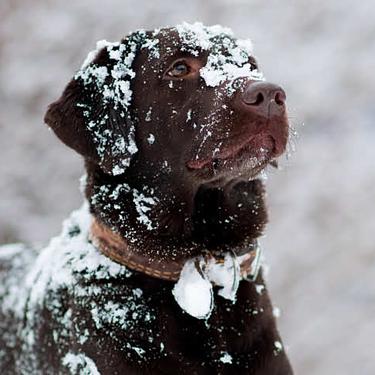
Dogs & Cold Weather: How Long Can My Dog Be Outside?
Read More
Dogs & Holiday Sweets: Which Are Bad & What To Do if a Dog Eats Them
Read More
Dogs & Ice Cream: The Scoop on Why You Should Avoid It
Read More
Dogs & Poison Ivy: What You Need to Know
Read More
Dogs & Table Food: Why to Avoid Feeding Them Scraps
Read More
Dogs That Shed: Why and What You Can Do
Read More
Dogs With Joint Problems Don't Have to Remain in Pain
Read More
Dogs and Fireworks: How to Help a Scared Dog
Read More
Dogs and Ticks: Protecting Your Pup
Read More
Dogs in Swimming Pools: Your Guide to Safe Summer Fun
Read More
Domestic Shorthair Cat
Read More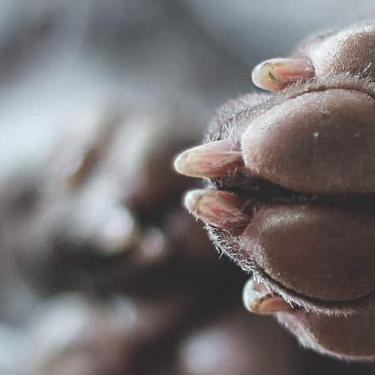
Dominant Paws: Is Your Dog a Righty or Lefty?
Read More
Dwarfism in Dogs: Types, Health Concerns & Breeds It Affects
Read More
Ear Infections in Dogs: What You Need to Know
Read More
Ear Mites in Cats & Kittens: Signs, Symptoms & Treatments
Read More
Easter for Pets: How to Celebrate a Fun and Safe Holiday
Read More
Easy DIY Dog & Cat Toys: Nine of Our Favorites
Read More
Effective Ways to Curtail Your Dog's Excessive Barking
Read More
Egyptian Mau
Read More
English Bulldog
Read More
English Cocker Spaniel
Read More
English Foxhound
Read More
English Pointer
Read More
English Setter
Read More
English Springer Spaniel
Read More
Enlarged Prostate in Dogs: Managing Benign Prostatic Hyperplasia
Read More
Enlarged Spleen in Dogs: Causes, Symptoms & Treatment Options
Read More
Escaping Dogs: Why Dogs Get Loose & How to Prevent It
Read More
Essential Medical Supplies for a Dog First-Aid Kit
Read More
Essential Oils for Cats: Are They Safe?
Read More
Essential Vitamins Needed for Dogs
Read More
European Shorthair Cat
Read More
Everything You Ever Wanted to Know About Dog Poop
Read More
Everything You Need to Know About Cat Tongues
Read More
Excessive Thirst in Dogs: Common Causes & When to See the Vet
Read More
Exercise Ideas for Your Large-Breed Dog
Read More
Exercise Tips to Keep Your Dog Active
Read More
Exotic
Read More
Explaining Your Cat's Greeting
Read More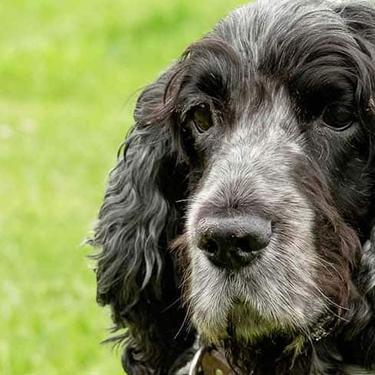
Facial Paralysis in Dogs: Is Your Pup Looking Droopy?
Read More
Fact or Fiction: Can Dogs Smell Cancer?
Read More
Facts About Kidney Disease in Dogs
Read More
Fats
Read More
Features to Look For in the Best Dog Harness
Read More
Feeding Fish to Your Cat: A Healthy Option
Read More
Feline Aging & How it Affects Your Cat's Brain
Read More
Feline Cognitive Dysfunction & Cat Dementia and How To Help
Read More
Feline Idiopathic Cystitis: Symptoms, Diagnosis & Treatment
Read More
Feline Infectious Peritonitis: Risk Factors, Symptoms & Treatment of FIP in Cats
Read More
Feline Lower Urinary Tract Disease and Infections: Types, Causes and Treatment
Read More
Feline Megacolon: Signs, Causes and Treatment
Read More
Feline Pancreatitis: What You Need to Know
Read More
Field Spaniel
Read More
Finding A Lost Dog: What Should You Do?
Read More
Finding Your New Kitten: Where to Look
Read More
Finding a Pet Sitter: Tips for Finding One You Can Trust
Read More
Finnish Spitz
Read More
First Aid Tips for Your Dog
Read More
Five Common Cat Digestive Problems
Read More
Five Great Ways to Keep Your Puppy Healthy
Read More
Five Most Intelligent Dog Breeds
Read More
Flat-coated Retriever
Read More
Flea and Tick Medication: Oral vs. Topical Treatments
Read More
Food Allergies, Intolerance & Your Cat's Sensitive Stomach
Read More
Foods that are Dangerous or Toxic to Cats
Read More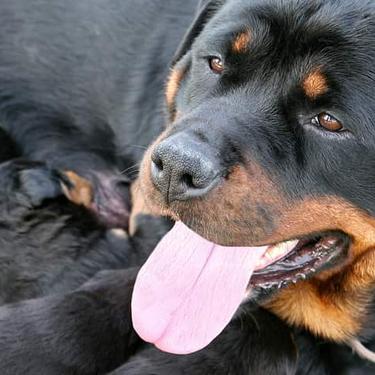
Fostering a Puppy: A How-To Guide
Read More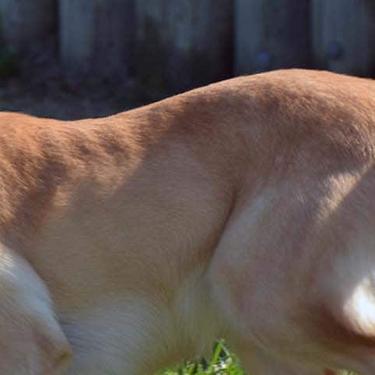
Four Ways to Keep Your Adult Dog's Weight Ideal & Healthy
Read More
French Bulldog
Read More
From Kitten to Senior Cat Food: Cat Nutrition by Lifestage
Read More
Frozen & Fun Dog Treats for Hot Summer Days
Read More
Fun DIY Beds for Your Cat
Read More
Fun Games for Exercising Your Cat | Hill's Pet
Read More
Gastroenteritis in Dogs: What You Need to Know
Read More
Gastrointestinal & Digestive Disorders in Dogs: Types & Causes
Read More
German Rex
Read More
German Shepherd
Read More
German Shorthaired Pointer
Read More
German Wirehaired Pointer
Read More
Getting Rid of Pet Hair Around the House
Read More
Getting Rid of Your Dog's Ear Mites
Read More
Getting Your Cat Into Her Carrier
Read More
Giant Schnauzer
Read More
Giardia in Dogs
Read More
Gingivitis in Cats: Causes, Signs, Treatment & Prevention
Read More
Giving Pets as Gifts: How to Do So Responsibly
Read More
Glaucoma in Cats: Causes, Diagnosis & Treatment
Read More
Going to the Beach: How to Prepare Your Pup
Read More
Golden Retriever
Read More
Goldendoodle Dog
Read More
Grain-Free Cat Food: What You Need to Know
Read More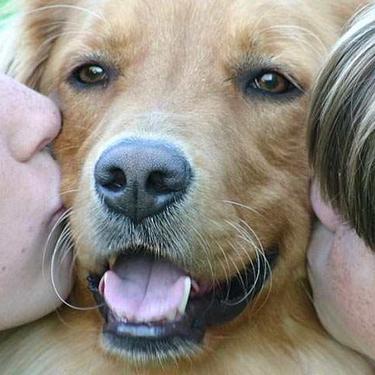
Grain-Free Dog Food: Is it Right For Your Dog?
Read More
Great Dane
Read More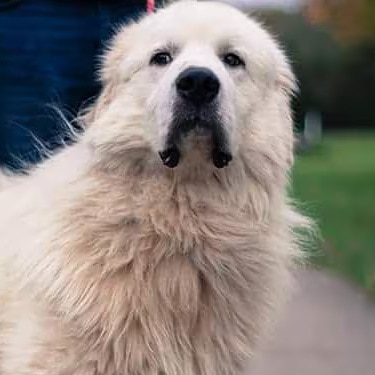
Great Pyrenees
Read More
Great Ways to Pamper & Spoil Your Dog
Read More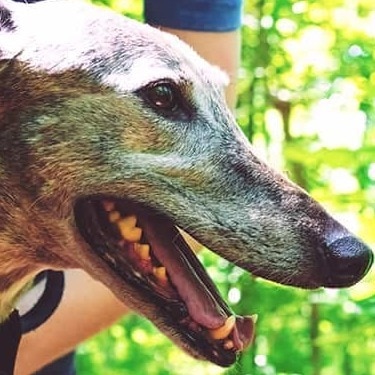
Greyhound
Read More
Grooming Suggestions for Keeping Your Dog's Coat Healthy
Read More
Guide to Dog Ear Position Meaning and Body Language
Read More
Havana Brown
Read More
Havanese
Read More
Health Hazards of Excessive Salt for Your Dog
Read More
Healthy Dog Treats You Can Make at Home
Read More
Healthy Homemade Cat Treat Recipes
Read More
Heart Disease and Conditions in Dogs: Causes & Facts
Read More
Heart Disease in Your Cat: How Nutrition Can Help
Read More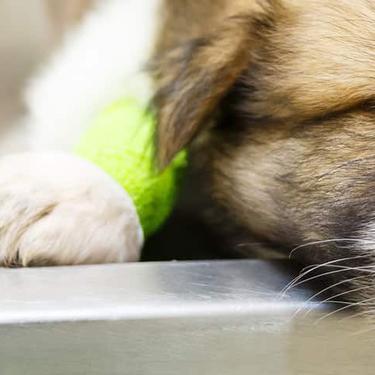
Heartworms in Dogs: What You Need to Know
Read More
Heat Exhaustion in Dogs: Signs Your Dog Is Overheating
Read More
Help! My Dog Won't Go Outside When It's Raining
Read More
Helpful Tips for Bathing & Grooming a Cat
Read More
Helpful Tips for Traveling with Your Cat
Read More
Helpful Tips for a Teething Puppy
Read More
Helpful Ways to Keep Your Dog Safe Around the Holidays
Read More
Helpful Ways to Keep Your Dog's Skin & Coat Healthy
Read More
Helping Your Cat Lose Weight: Cat Foods for Weight Loss and Exercise Tips
Read More
Helping Your Cat Lose Weight: Food & Exercise Tips
Read More
Helping Your Cat Recover from Serious Illness or Accidents
Read More
Helping Your Dog Deal With Allergic Dermatitis & Skin Irritants
Read More
Helping Your Overweight Cat Lose Weight
Read More
Helping Your Puppy Behave While Eating
Read More
Helping a Cat with Sensitive Skin
Read More
Helping a Dog Hit By a Car
Read More
Helping a New Dog's Anxiety After Coming Home
Read More
Heterochromia in Dogs: Why Your Dog Has Two Different-Colored Eyes
Read More
Highland Fold
Read More
Hilarious Reasons We’re All Thankful for Our Pets This Year
Read More
Hill's Kitten Foods: A Healthy Choice for Your Kitten
Read More
Hill's Puppy Food: Quality Ingredients for Health & Nutrition
Read More
Himalayan
Read More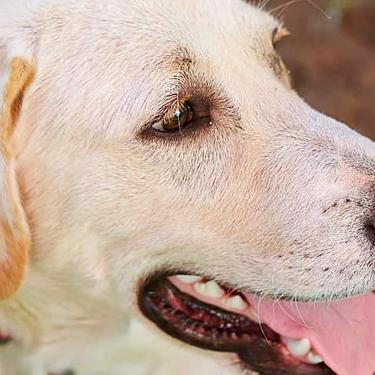
Hip Dysplasia in Dogs: Causes, Symptoms, & Treatment
Read More
Holiday Foods to Avoid Giving Your Dog
Read More
Home Dental Care Methods for Your Cat
Read More
Hookworms in Dogs: What Are They, and How Do Dogs Get Them?
Read More
How Can I Stop My Dog From Chewing?
Read More
How Cats Show Affection to Their Humans
Read More
How Cold Is Too Cold for Cats?
Read More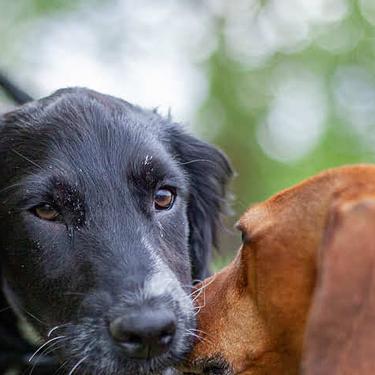
How Do I Know If My Dog Likes Day Care?
Read More
How Do You House Train a Puppy?
Read More
How Do You Manage Hairballs in Cats?
Read More
How Fatty Acids Can be Healthy for Your Dog
Read More
How Long Are Dogs Pregnant?
Read More
How Long Can a Dog Live With Cancer?
Read More
How Many Cat Breeds Are There?
Read More
How Many Dog Breeds Are There?
Read More
How Much Living Space Do I Need for a Cat?
Read More
How Much Should I Feed My Adult Cat?
Read More
How Much Water Should Dogs & Cats Drink Each Day?
Read More
How Often Should I Feed My Dog?
Read More
How Often Should You Bathe Your Dog?
Read More
How Pets Help Ease the Transition to an Empty Nest
Read More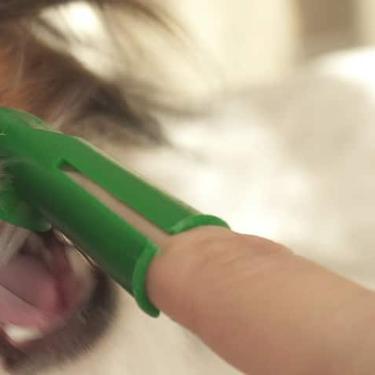
How Proper Dog Oral Care Leads to Healthy Dog Teeth
Read More
How To Address Food Aggression in Dogs
Read More
How Wellness Checks Help Senior Cats
Read More
How the Loss of a Pet Affects Your Other Pets
Read More
How to Become a Pet Nutritionist or Vet
Read More
How to Build a DIY Dog Ramp
Read More
How to Care for Cat Paw Pads
Read More
How to Care for Terminally Ill Pets
Read More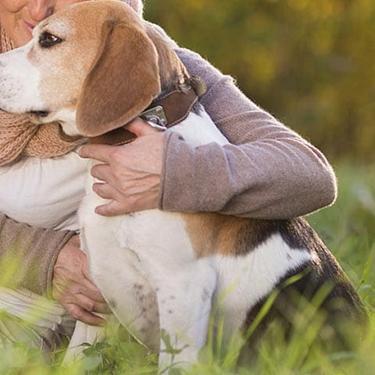
How to Care for a Dog Going Blind
Read More
How to Care for an Injured Cat
Read More
How to Celebrate Your Dog's Birthday in Style
Read More
How to Choose a Dog Life Jacket
Read More
How to Choose the Right Cat Nutrition for Your Cat
Read More
How to Choose the Right Leash, Collar or Harness for Your Dog
Read More
How to Choose the Right Leash, Collar or Harness for Your Dog
Read More
How to Choose the Right Size & Type of Dog Crate
Read More
How to Clean Cat Ears: A Step-by-Step Guide
Read More
How to Clean Dog Ears
Read More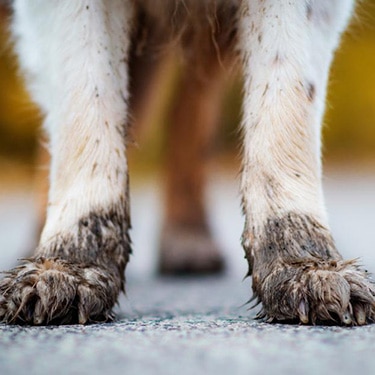
How to Clean Dog Paws: Tips for Success
Read More
How to Compare Dog Years to Human Years
Read More
How to Deal with Allergies Caused by Your Dog
Read More
How to Determine Your Dog's Breed
Read More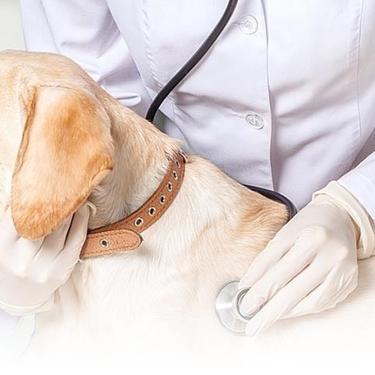
How to Find an Amazing Vet for Dogs You Love
Read More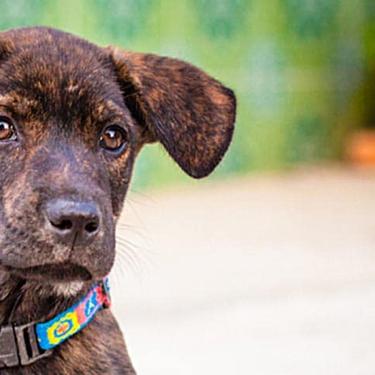
How to Find the Best Puppy Food for Your Dog
Read More
How to Get Dog Pee Smell Out of Carpet
Read More
How to Get Your Cat to Take a Pill
Read More
How to Get Your Dog to Stop Digging (& Why They Do It)
Read More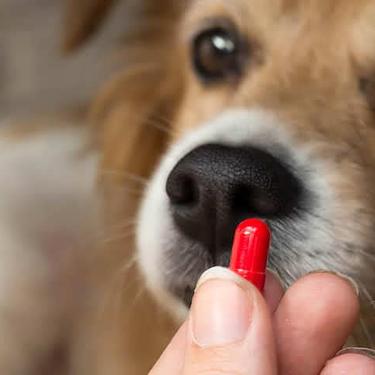
How to Give a Dog a Pill: Helpful Tips & Methods
Read More
How to Handle Cat Spraying
Read More
How to Handle Dogs Who are Picky Eaters
Read More
How to Handle Your Dog's Fear of Water & Bathing
Read More
How to Handle Your Dog's Wasp or Bee Sting
Read More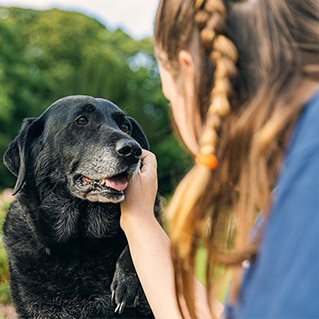
How to Help Aging Dogs: Supporting the Senior Years
Read More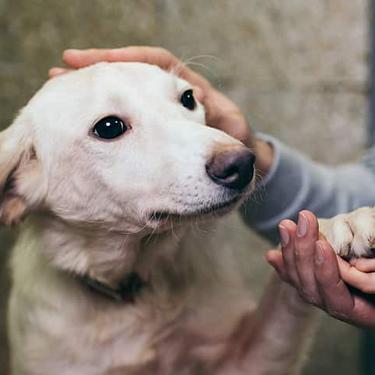
How to Help Pets After A Natural Disaster
Read More
How to Help Your Cat's Behavioral Problems
Read More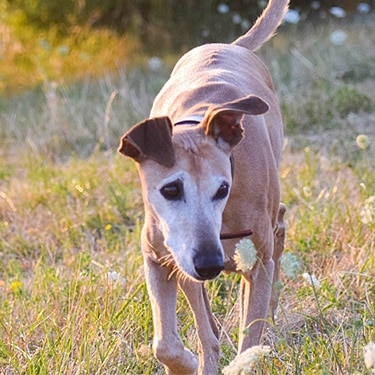
How to Help Your Skinny Dog Gain Weight
Read More
How to Help a Lost Cat
Read More
How to Identify & Remove a Tick From a Cat
Read More
How to Introduce a New Cat to Your Current Pets
Read More
How to Keep Cats Warm in Winter
Read More
How to Keep Dogs Active in Winter
Read More
How to Keep Dogs Out of the Litter Box
Read More
How to Keep Dogs Safe (and Cool) in Summer Weather
Read More
How to Keep Your Dog Safe While Hunting
Read More
How to Keep Your Dog Safe on Halloween
Read More
How to Keep a Dog Warm in Winter Outside
Read More
How to Leash Train a Puppy
Read More
How to Litter Train a Kitten
Read More
How to Live With Cat Allergies
Read More
How to Make DIY Cat Shelves
Read More
How to Make Vet Visits Less Scary for Your Dog
Read More
How to Make Your Cat Feel Safe on Halloween
Read More
How to Make Your Garden Safe for Your Dog
Read More
How to Make Your Own DIY Cat Scratching Post
Read More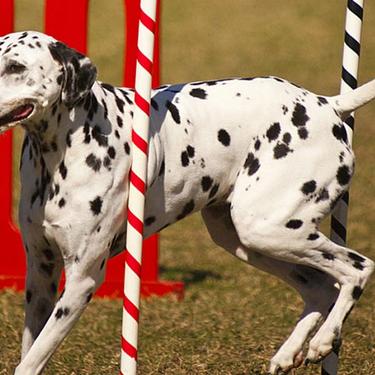
How to Make Your Own Dog Obstacle Course
Read More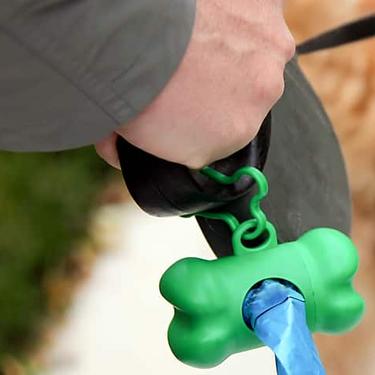
How to Manage IBD in Dogs
Read More
How to Perform CPR on Dogs & Cats
Read More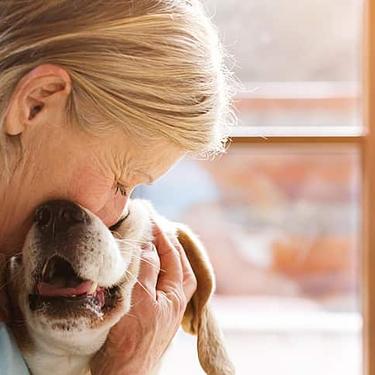
How to Perform the Heimlich Maneuver on a Choking Dog
Read More
How to Potty Train an Older Dog
Read More
How to Prevent and Soothe Your Kitten's Upset Stomach
Read More
How to Prevent and Treat Fleas on Dogs
Read More
How to Properly Mix Wet & Dry Pet Foods
Read More
How to Properly Pick Up a Cat
Read More
How to Put On a Cat Harness
Read More
How to Put Weight On a Cat
Read More
How to Read a Cat Food Label
Read More
How to Read a Pet Food Label
Read More
How to Recognize and Ease Stress in Dogs
Read More
How to Reduce Your Pet's Carbon Paw Print
Read More
How to Ride a Bike With a Dog: Tips for Success
Read More
How to Safely Remove Burrs on Dogs
Read More
How to Soothe a Puppy With an Upset Stomach
Read More
How to Spot & Treat Dog Bug Bites
Read More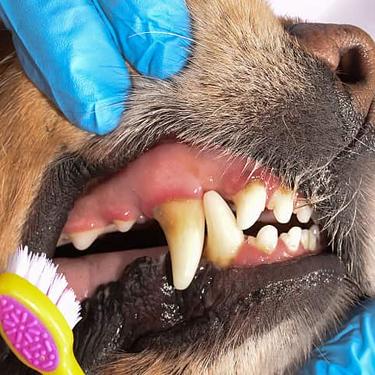
How to Spot and Prevent Periodontal Disease in Dogs
Read More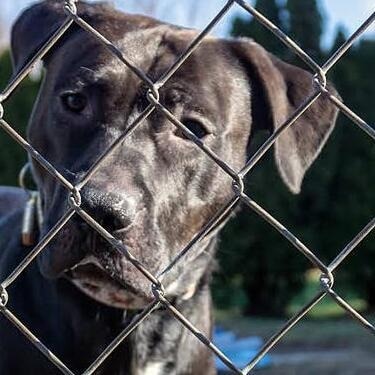
How to Stop Dog Fence Fighting
Read More
How to Stop Your Dog From Barking at the Door
Read More
How to Support Kidney Health for Dogs
Read More
How to Take Your Dog Or Cat's Temperature
Read More
How to Talk to Cats (and Are They Really Listening?)
Read More
How to Talk to Dogs (and Know if They Understand You!)
Read More
How to Teach a Puppy to Sit: Basic Command Training
Read More
How to Tell If Your Cat Is Lonely
Read More
How to Tell If Your Dog Has an Upset Stomach & How to Treat It
Read More
How to Tell If a Cat Is Sick
Read More
How to Tell if You Have an Overweight Dog
Read More
How to Tell if Your Cat has a Fever
Read More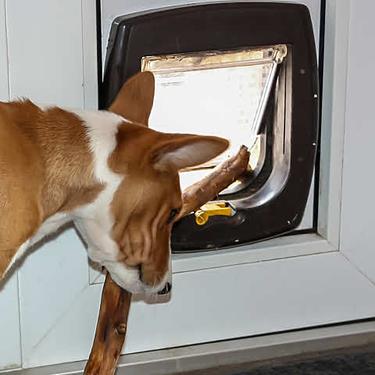
How to Train Your Dog to Use a Doggie Door
Read More
How to Treat A Cut on A Dog (& What to Put on It)
Read More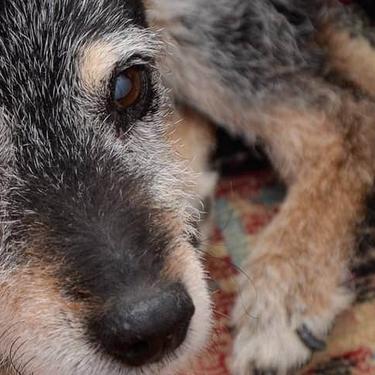
How to Use Dog Diapers
Read More
Human Foods That Are Dangerous for Your Dog
Read More
Hyperthyroidism in Cats: Warning Signs, Management & Treatment
Read More
Hypothyroidism in Dogs: Symptoms, Diagnosis & Treatment
Read More
IBD in Cats: What You Need to Know
Read More
IVDD / Intervertebral Disc Disease in Dogs: Symptoms, Diagnosis, Treatment & More
Read More
Ibizan Hound
Read More
Importance of DHA in your Pet's Food
Read More
Important Information About Kidney Disease in Cats
Read More
Important Information About Spaying & Neutering Your Puppy
Read More
Important Information on Food Allergies & Intolerance in Your Cat
Read More
Indoor Activities for Herding Dogs
Read More
Interactive Cat Toys
Read More
Irish Setter
Read More
Irish Water Spaniel
Read More
Irish Wolfhound
Read More
Is Chocolate Bad for Cats?
Read More
Is Chocolate Bad for My Dog? (& What to Do If They Eat It)
Read More
Is Corn Bad for Pets?
Read More
Is Daycare Right for Your Cat?
Read More
Is Hand Sanitizer Bad for Dogs? (& What to Do if They Eat it)
Read More
Is High-Protein Dog Food Healthy for Your Pup?
Read More
Is Milk Actually Good for a Cat?
Read More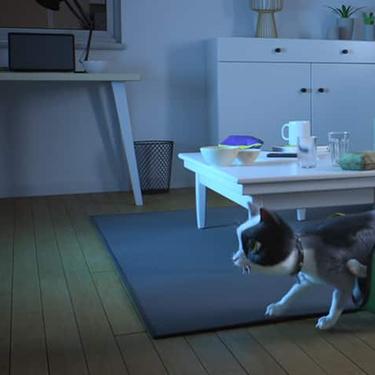
Is My Cat Overweight?
Read More
Is My Cat Pregnant? How to Tell & Tips for Care
Read More
Is My Dog Mad at Me?
Read More
Is My Dog Really Watching TV?
Read More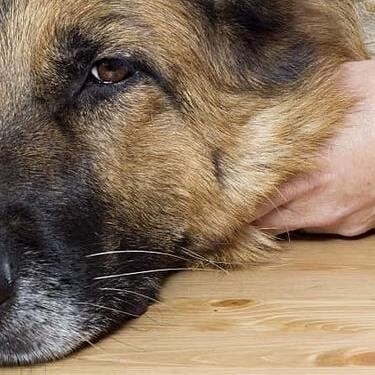
Is My Dog Sick? How Can I Tell?
Read More
Is My Dog Too Skinny?
Read More
Is My Dog's Sneezing Normal?
Read More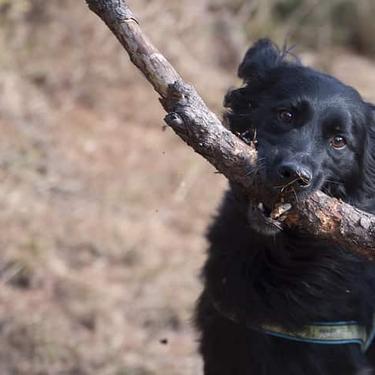
Is My Pet Gay?
Read More
Is Pineapple Safe for Dogs?
Read More
Is Soda Bad for My Dog?
Read More
Is Your Cat Hiding Their Pain? Recognizing the Signs & Symptoms.
Read More
Is Your Cat Scared of Thunder? Here's What to Do
Read More
Is Your Cat Scooting on the Carpet? Anal Glands May Be the Culprit
Read More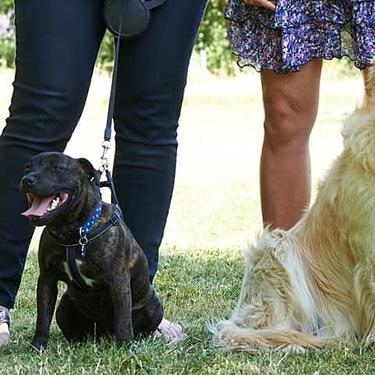
Is Your Dog Ready for Obedience School?
Read More
Is Your Dog Scared of Thunder? Here's What to Do
Read More
Is Your Dog a Carnivore or an Omnivore?
Read More
Is Your Dog's Play Behavior Too Aggressive?
Read More
Is it Safe to Feed My Dog a Banana?
Read More
Italian Greyhound
Read More
Items to Keep in Your Pet Emergency Kit
Read More
Jack Russell Terrier
Read More
Japanese Bobtail
Read More
Japanese Chin
Read More
Javanese
Read More
Joint Issues and Hip Dysplasia in Cats
Read More
Just How Smart Are Cats?
Read More
Keeping Dogs Safe from Outdoor Hazards
Read More
Keeping Older Dogs Young: How to Encourage Vitality
Read More
Keeping Pets Calm During Thunderstorms
Read More
Keeping Your Cat Hydrated if She's Not Drinking Water
Read More
Keeping Your Cat's Mouth Healthy
Read More
Keeping Your Dog From Begging at the Dinner Table
Read More
Keeping Your Pet Healthy: Important Questions to Ask Your Vet
Read More
Keeshond
Read More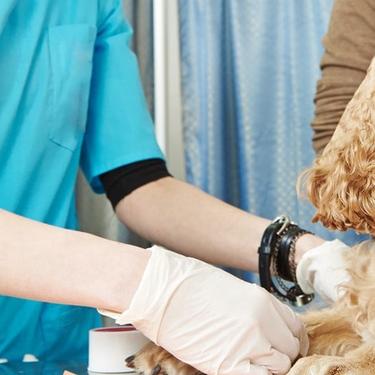
Kennel Cough in Dogs and Cats
Read More
Key Tips to Keep Your Puppy Fit & Healthy
Read More
Kitten Proofing Your Home with 10 Easy-to-Follow Tips
Read More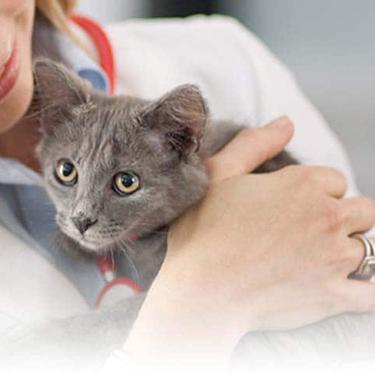
Kitten Psychology: Understanding What Your Cat is Thinking
Read More
Kitten Teething: Age Timeline, Signs & How You Can Help
Read More
Kitten's Development Milestones: First Weeks & Months
Read More
Knowing Your Cat's Special Anatomy
Read More
Knowing the Life Stages of Your Large Dog
Read More
Komondor
Read More
Kuvasz
Read More
Labrador Retriever
Read More
Laryngeal Paralysis in Dogs
Read More
Learn About the Best Dog Breeds for Children
Read More
Leaving a Cat Home Alone: How Long is Safe?
Read More
Leaving a Dog in the Car: Hot & Cold Temperature Concerns
Read More
Leonberger
Read More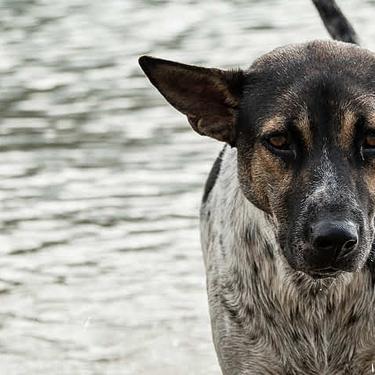
Leptospirosis in Dogs: Facts, Symptoms, Treatment & Prevention
Read More
Letting Your Cat Outside: What You Need to Know
Read More
Lhasa Apso
Read More
Liver Disease in Cats: Background, Symptoms & Treatment
Read More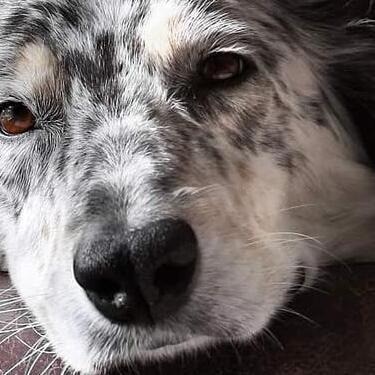
Liver Disease in Dogs: Facts That Dog Parents Should Know
Read More
Liver Disease in Your Cat: Causes, Signs & Symptoms
Read More
Lumps on Your Dog: Common Types & What You Should Know
Read More
Luxating Patella in Dogs: Diagnosis, Treatment & More
Read More
Lyme Disease in Dogs: Symptoms, Testing, Treatment & Prevention
Read More
Lymphoma in Cats: What You Need to Know
Read More
Maine Coon
Read More
Make a Homemade Dog Bed Your Pup Will Love
Read More
Making a DIY Cat-Proof Toilet Paper Holder
Read More
Male Cat Urinary Blockages: Causes, Symptoms & Treatment
Read More
Maltese
Read More
Managing Cat Diarrhea: Causes, Symptoms & Treatment
Read More
Managing Clingy Cats: Do I Have a Velcro Kitty?
Read More
Managing Dog Hot Spots and Acral Lick Granulomas
Read More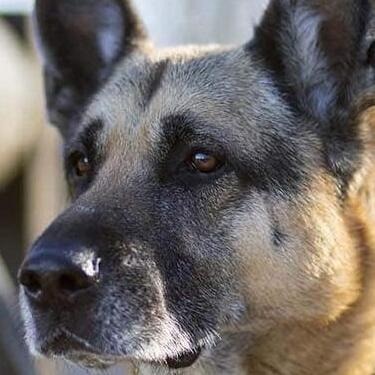
Managing Kidney Failure in Dogs
Read More
Managing Megaesophagus in Dogs
Read More
Managing Osteoarthritis in Cats
Read More
Managing Your Cat's Bad Breath: Causes and Remedies
Read More
Managing Your Dog's Farts & Gas Problems
Read More
Managing Your Dog's Seasonal Allergies
Read More
Managing Your Dogs Congestive Heart Failure
Read More
Managing Your Male Puppy Around In-Season Females
Read More
Manx
Read More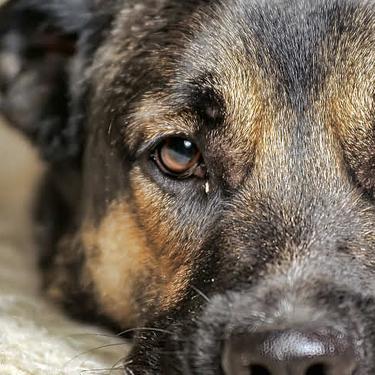
Mast Cell Tumors in Dogs: Causes, Appearance, Treatment & More
Read More
Mastiff
Read More
Meal Feeding vs. Free Feeding Cats: What's Best?
Read More
Medium Sized Dogs: The Goldilocks of Dog Sizes
Read More
Methods for Stopping Your Puppy's Aggressive Behavior
Read More
Minerals
Read More
Miniature Bull Terrier
Read More
Miniature Pinscher
Read More
Miniature Schnauzer
Read More
Mixing Cats and Holidays: Tips for a Safe Season
Read More
Morkie Dogs
Read More
Moving & Relocation with Your Cat: Tips & Suggestions
Read More
Moving With a Pet: A How-To Guide
Read More
My Cat Ate Marijuana: Is It Toxic for Them?
Read More
My Cat Ate String: Dangers, What to Do & Treatments
Read More
My Cat Hates My Dog: What Should I Do?
Read More
My Cat Ran Away: 6 Tips for Finding Your Cat
Read More
My Cat Won't Eat: What You Can Do to Help
Read More
My Dog Ate Gum: What Should I Do?
Read More
My Dog Ate Raw Chicken: What Should I Do?
Read More
My Dog Ate Soap: What Should I Do?
Read More
My Dog Doesn't Bark: Is Something Wrong?
Read More
My Dog Is Bullying Other Dogs: What Should I Do?
Read More
My Dog Is Coughing: 6 Possible Reasons Why
Read More
My Dog Is Not Affectionate Toward Me — Help!
Read More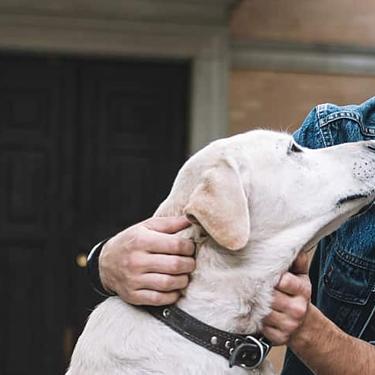
My Dog Is Scared of Men: What Should I Do?
Read More
My Dog Sleeps All Day: Is That Normal?
Read More
My Dog Was Sprayed By A Skunk: What Should I Do?
Read More
My Dog is Acting Lethargic: Causes & How to Help
Read More
My Pet Ate a Lizard — What Should I Do?
Read More
Newborn Puppy Care: 5 Things You Need to Know
Read More
Newfoundland
Read More
No Matter What Kind of Trip, This Dog Travel Checklist Can Help.
Read More
Norfolk Terrier
Read More
Norwegian Elkhound
Read More
Norwegian Forest Cat
Read More
Norwich Terrier
Read More
Odd Behaviors of Dogs: Running in Their Sleep and More
Read More
Old Dog Syndrome: All About Vestibular Disease in Dogs
Read More
Old English Sheepdog
Read More
Options for Boarding Your Dog When You Go Out of Town
Read More
Oriental
Read More
Origins of 6 Common Cat Sayings
Read More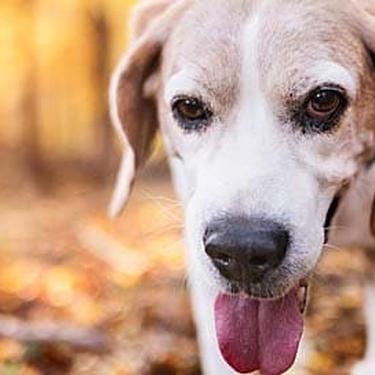
Osteoarthritis in Dogs: Symptoms & Management
Read More
Outside Games & Activities for Your Puppy
Read More
Overcoming Obesity in Small Dogs
Read More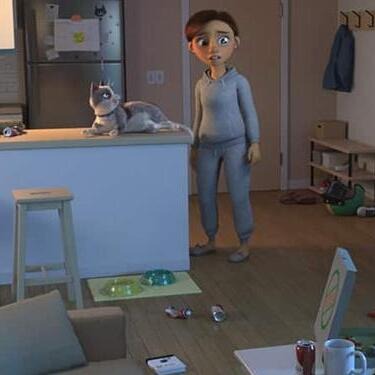
Overweight Cat? Slim Down with These Activities
Read More
PU Surgery in Cats: What You Need to Know
Read More
Pain Relief for Your Cat: Dangerous Medications to Avoid
Read More
Papillon
Read More
Parvovirus: What You Need to Know
Read More
Pekingese
Read More
Pembroke Welsh Corgi
Read More
Persian
Read More
Pet Dental Health: What Happens During a Deep Teeth Cleaning?
Read More
Pet Food Labels Provide Limited Nutritional Information
Read More
Pet Food Sharing: Can Cats Eat Dog Food? (& Vice Versa?)
Read More
Pet Food Storage Tips
Read More
Pet Home Alone: Back to School's Effect on Your Pet
Read More
Pet Sitter Checklist: 7 Essential Items
Read More
Pet Spas: A Guide to Pet Pampering & Treatments
Read More
Pet-Safe Disinfectant: Your Guide to Cat- and Dog-Friendly Cleaning Products
Read More
Pets, Marijuana & THC: What You Need To Know
Read More
Pharaoh Hound
Read More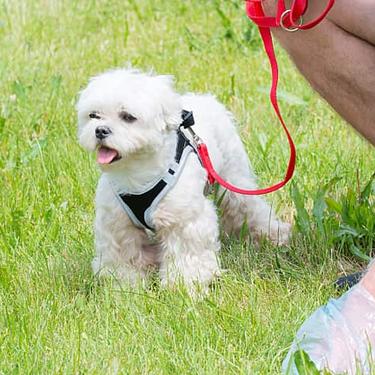
Picking Up After Your Dog: Why It's Important
Read More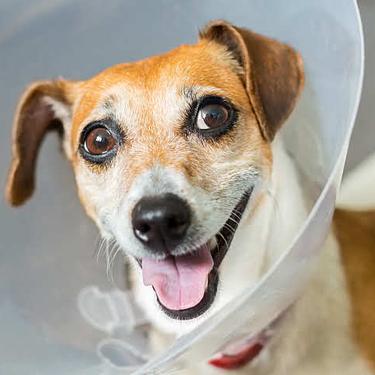
Plastic or Soft Dog Cone? Choosing the Best Elizabethan Collar
Read More
Playing Fetch with Sticks: Is It Safe for Your Dog?
Read More
Pneumonia in Dogs: Types, Clinical Signs, Treatment & Prevention
Read More
Pomeranian
Read More
Pomsky Dog
Read More
Poodles
Read More
Portuguese Water Dog
Read More
Predictive Biology: The Science Behind Our Pet Food
Read More
Pregnancy in Cats: Signs & Preparation for Delivery
Read More
Preparing Your Cat for a New Baby
Read More
Preparing Your Nervous Cat for Large Gatherings at Home
Read More
Preventing Growth Disorders in Dogs
Read More
Preventing Your Dog from Chewing Up Everything
Read More
Probiotics and Prebiotics for Cats
Read More
Protecting Your Pets During a Natural Disaster: 8 Steps to Get Prepared
Read More
Pug
Read More
Puggle Dog
Read More
Puli
Read More
Pulmonary Hypertension in Dogs: What You Need to Know
Read More
Puppies and Kittens: Key Training Differences
Read More
Puppy Day Care: Is It a Good Fit?
Read More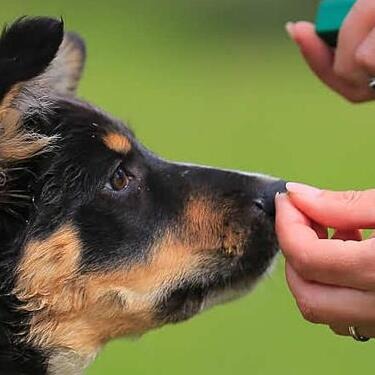
Puppy Obedience Training: How to Be Successful
Read More
Puppy Potty Training Tips to Avoid Accidents in the Home
Read More
Puppy Supplies You Really Need
Read More
Puppy Timeline: How Puppies Grow up to Be Dogs
Read More
Pyloric Stenosis in Dogs: Causes, Symptoms, & Treatment
Read More
Pyoderma in Dogs: What You Need to Know
Read More
Ragamuffin
Read More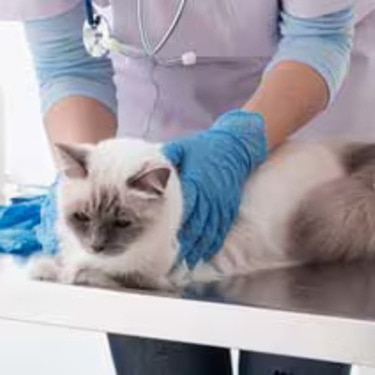
Ragdoll
Read More
Raising a Puppy: What You Need to Know
Read More
Reading Dog Food Reviews: What You Need to Know
Read More
Real Life Stories of Caring for Cats with Disabilities
Read More
Reasons Why Your Cat is Throwing Up After Eating
Read More
Reasons Why Your Dog is Losing Tail Hair
Read More
Reasons Your Cat Sheds A Lot
Read More
Reasons for Your Cat Vomiting
Read More
Reasons to Adopt a Senior Dog
Read More
Reasons to Be Thankful for Your Pet This Year
Read More
Recognizing Cat Obesity, Causes and Signs
Read More
Recognizing Common Signs of Aging in Your Dog
Read More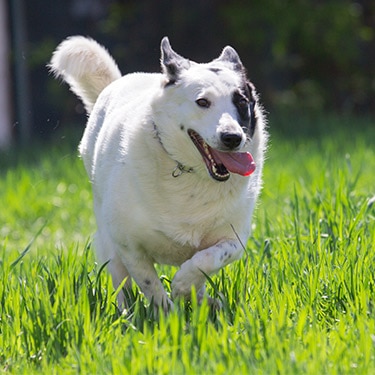
Recognizing Dog Obesity, Causes and Signs
Read More
Recognizing and Managing Dog Dementia
Read More
Reducing Holiday Party Stress for Your Dog
Read More
Reducing That Wet Dog Smell in Cars
Read More
Registering Your Dog as a Therapy Dog
Read More
Rehoming a Cat: Tips for Finding a New Home
Read More
Rehoming a Dog After the Loss of a Loved One
Read More
Removing Foul-Smelling Cat Odors From Your Home
Read More
Rhodesian Ridgeback
Read More
Ringworm in Cats: Symptoms, Treatment and Prevention
Read More
Ringworm in Dogs: How to Treat and Prevention Tips
Read More
Risks of Overfeeding Your Dog
Read More
Rottweiler
Read More
Rough Collie
Read More
Running with Your Dog: 12 Tips For a Successful Race
Read More
Running with Your Dog: How to Get Started
Read More
Russian Blue Cat
Read More
Safe Dog Biscuits to Share with Your Pup
Read More
Safe Play Between Cats and Kids
Read More
Safety Tips for Walking Dogs at Night
Read More
Saint Bernard
Read More
Saluki
Read More
Samoyed
Read More
Schipperke
Read More
Scottish Deerhound
Read More
Scottish Fold
Read More
Scottish Terrier
Read More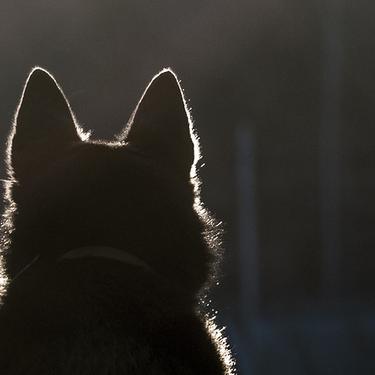
Secondhand Smoke and Pets: What You Need to Know
Read More
Selkirk Rex Cat
Read More
Senior Cat Accessories & Household Changes: What Your Aging Cat Needs
Read More
Senior Cat Problems: What You Should Know About Aging Cats
Read More
Service Cats: Giving Emotional Support to Pet Parents
Read More
Service Dogs Helping Other Dogs: Two Real-Life Stories of Pups Helping One Another
Read More
Setting the Facts Straight: Common Myths About Your Cat
Read More
Seven Digestive Problems in Dogs & How to Handle Them
Read More
Shar-pei Dog
Read More
Shelter Heroes: How a Pet Adoption Counselor Finds Forever Homes
Read More
Shetland Sheepdog
Read More
Shih Tzu
Read More
Shih-poo Dogs
Read More
Shorkie Dogs
Read More
Should I Get My Cat Groomed by a Professional?
Read More
Should I Worry If My Dog Twitches During Sleep?
Read More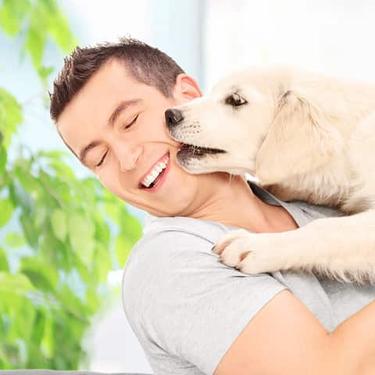
Should You Allow a Dog to Give You Kisses?
Read More
Should You Give Your Cat Bread?
Read More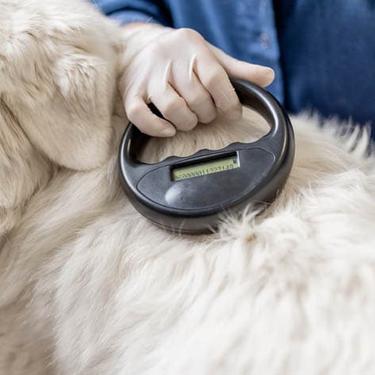
Should You Microchip Your Pet?
Read More
Siamese
Read More
Siberian Husky
Read More
Side Effects of Rabies Vaccine in Dogs
Read More
Signs That Your Cat is Grieving & How You Can Help
Read More
Signs of Dehydration in Cats and What to Do
Read More
Signs of Stress in Cats and How You Can Help | Hill's Pet
Read More
Signs of a Rabid Cat and What to Do If Your Pet Is Exposed
Read More
Silky Terrier
Read More
Simple Ways to Keep Your Senior Cat Moving
Read More
Singapura Cat
Read More
Six Ways to Socialize Your New Cat
Read More
Six of the Friendliest Cat Breeds
Read More
Skin Cancer in Dogs: Symptoms, Diagnosis & Early Detection
Read More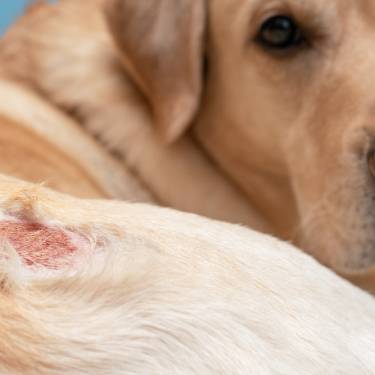
Skin Infections in Dogs: Causes, Treatment and Prevention Tips
Read More
Skin Lumps on a Cat: Types, Causes & Treatment
Read More
Skin Problems to Watch For in Your Cat
Read More
Skye Terrier
Read More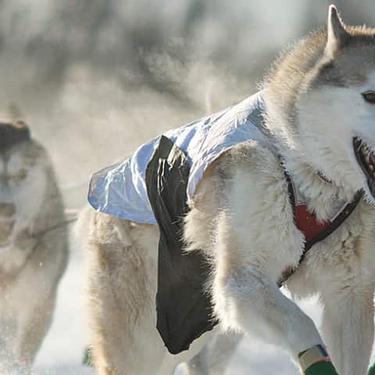
Sled Dogs Amazing Story of Strength and Beauty
Read More
Small Dog Breeds: What You Need to Know
Read More
Smart Litter Boxes: What You Need to Know
Read More
Smooth Fox Terrier
Read More
Snowshoe Cat
Read More
Soft-coated Wheaten Terrier
Read More
Somali
Read More
Special Care Considerations for Senior Cats
Read More
Special Diet Needs for Large & Giant-Breed Puppies
Read More
Sphynx
Read More
Spotting and Treating Acne in Cats
Read More
Squamous Cell Carcinoma in Cats: Signs, Causes and Prevention
Read More
Staffordshire Bull Terrier
Read More
Stage 1 Kidney Disease in Cats Often Goes Unnoticed
Read More
Standard Schnauzer
Read More
Steps for Command Training Your Kitten
Read More
Steps to Successfully Introduce a New Kitten to Your Cat
Read More
Steps to Take After Your Cat Gets Stung
Read More
Steps to Take If Your Dog Is Vomiting Blood
Read More
Steps to Take When Your Dog Dies
Read More
Stomatitis in Cats: Causes, Diagnosis & Treatment
Read More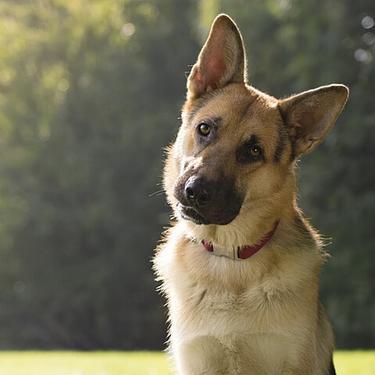
Strange Behaviors You've Probably Noticed in Your Dog
Read More
Stress in Dogs: Causes, Symptoms & Finding Relief
Read More
Strokes in Dogs: Signs, Risk Factors & What You Should Do
Read More
Subtle Signs that Your Cat is Aging
Read More
Suggestions for Grooming & Bathing Your Cat
Read More
Suggestions to Make Your Cat Drink from a Bowl
Read More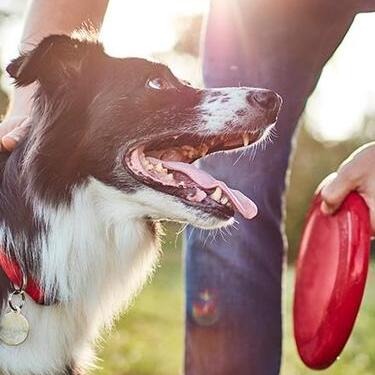
TAILS of Aging in Older Pets
Read More
Taking your dog to the vet
Read More
Tapeworms in Dogs: How Dogs Get Them & Getting Rid of Them
Read More
Teaching Your Dog to Fetch
Read More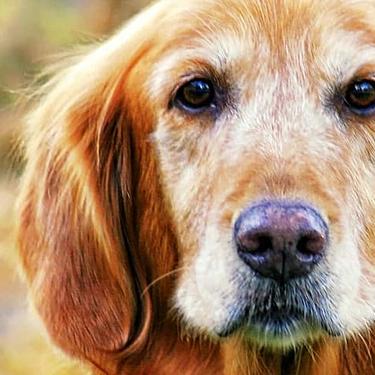
Teaching an Old Dog New Tricks: A Guide for Senior Training
Read More
Techniques for Obedience Training Your Kitten
Read More
The 10 Best Dog Breeds for Cold Weather
Read More
The Advantages of Wet Dog Food
Read More
The Best Holiday Gifts for Pets
Read More
The Best Large Breed Dogs
Read More
The Cat Loaf: What Is It & Why Do Cats Loaf, Anyway?
Read More
The Changing Needs of a Kitten Becoming a Cat
Read More
The Effects of Catnip on Your Cat
Read More
The Facts Behind Breed-Specific Dog Food
Read More
The History of "Fighting Like Cats and Dogs"
Read More
The Importance of Drinking Water for Your Cat
Read More
The Importance of Exercise for Your Puppy
Read More
The Importance of Satiety in Your Dog's Weight Loss
Read More
The Incredible Science Behind Your Pet's Microbiome
Read More
The Ins and Outs of Dog Whistles: What You Need to Know
Read More
The Meaning Behind Your Cat's Meow: 5 Distinct Cat Sounds & Noises
Read More
The Most Common Poisonous Plants to Cats
Read More
The Safest Way to Travel With a Dog in the Car
Read More
The Science Behind Our Love for Pets
Read More
The Science Behind Your Cat's Traits
Read More
The Science Behind Your Dog and His Behavior
Read More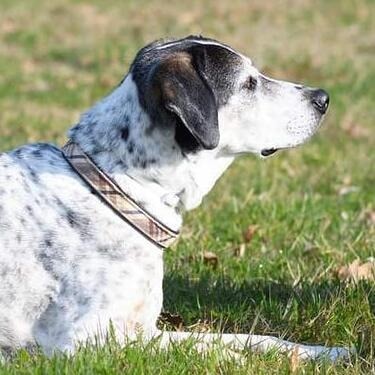
The Science Behind a Dog IQ Test
Read More
The Tales Your Cat's Tail Tells
Read More
Things to Consider When Adopting An Older Dog
Read More
Things to Consider When Adopting a Cat from an Animal Shelter
Read More
Things to Keep in Mind When Feeding Your Puppy
Read More
Tibetan Spaniel Dog
Read More
Tiffany
Read More
Time for a Gut Check: Prebiotics and Probiotics for Dogs
Read More
Tips & Resources for Feeding Your Cat
Read More
Tips for Building a DIY Cat Perch
Read More
Tips for Feeding Two Dogs at Once
Read More
Tips for Giving Your Cat Pills & Medications
Read More
Tips for Helping Senior & Older Dogs in Winter & Snow
Read More
Tips for Helping Your Dog's ACL Surgery Recovery
Read More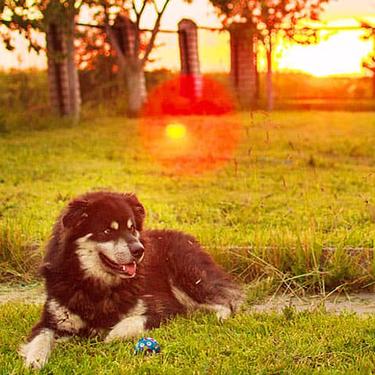
Tips for Keeping Your Dog Safe Outside
Read More
Tips for Keeping Your Dog's Teeth Clean & Healthy
Read More
Tips for Leaving Your New Dog Home Alone
Read More
Tips for Managing Your Cat's Kidney Disease
Read More
Tips for Socializing Your Kitten with People & Other Pets
Read More
Tips for Socializing an Older Dog
Read More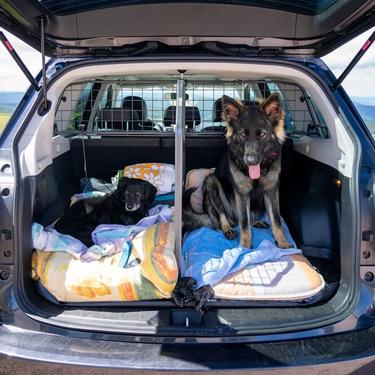
Tips for Taking Your Dog on a Vacation
Read More
Tips for Traveling with Your Dog in the Car
Read More
Tips for the First Few Weeks with Your New Puppy
Read More
Tips for the First Few Weeks with Your New Puppy
Read More
Tips to Prepare Your Home for a Puppy
Read More
Tooth Extractions in Dogs: Causes, Procedures, Recovery & Prevention
Read More
Top 5 Tips For You After Adopting a New Cat
Read More
Top Cat Pet Peeves: What Cats Hate
Read More
Toxoplasmosis in Cats: Facts, Symptoms, Transmission & More
Read More
Training Two Puppies: How to Succeed
Read More
Training Your Cat: Basic Things to Work On
Read More
Transportation and traveling
Read More
Treating Your Dog with and without Food
Read More
Treating a Dog With a Broken Leg
Read More
Treating a Torn ACL/CCL in Dogs: TPLO Surgery & More
Read More
Turkish Angora
Read More
Turkish Van Cat
Read More
Types of Cat Litter & How to Choose the Right One
Read More
Typical Health Problems in Small Breed Dogs
Read More
Understand Your Pet's Body Condition Score
Read More
Understanding & Caring For Your Miniature-Breed Dog
Read More
Understanding & Managing Congestive Heart Failure in Cats
Read More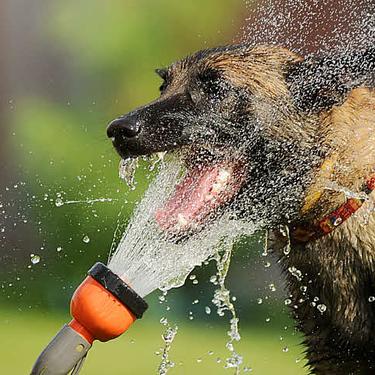
Understanding & Treating Dehydration in Dogs
Read More
Understanding Ailurophobia: The Fear of Cats
Read More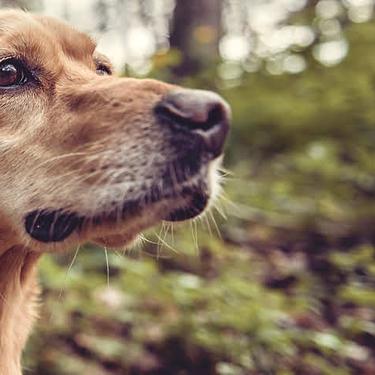
Understanding Blastomycosis in Dogs <strong></strong>
Read More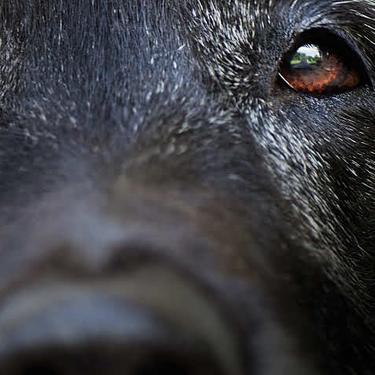
Understanding Bone Cancer in Dogs
Read More
Understanding Cat Inflammatory Bowel Disease
Read More
Understanding Cat Vitamins and Their Role in Well-Being
Read More
Understanding Dog Panting: When Should You Worry?
Read More
Understanding Dog Separation Anxiety: Signs and Solutions
Read More
Understanding FLUTD and UTIs in Cats
Read More
Understanding Immune System Support for Cats
Read More
Understanding Immune System Support for Dogs
Read More
Understanding Leaky Gut Syndrome in Cats: Causes, Signs and Treatment
Read More
Understanding Lungworms in Cats: Symptoms, Treatment & More
Read More
Understanding Pancreatitis in Dogs: Symptoms, Treatment & More
Read More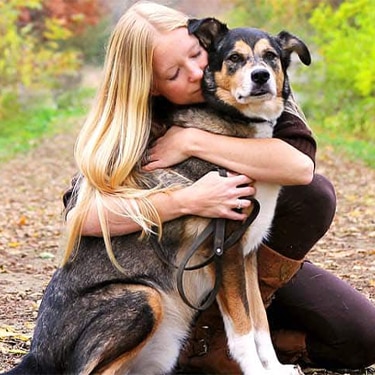
Understanding Pet Shelter Adoption
Read More
Understanding Roundworms In Cats
Read More
Understanding Shedding Season for Cats and Dogs
Read More
Understanding Sustainable Pet Food: How Your Pet's Food Impacts the Environment
Read More
Understanding Why My Cat's Stomach Gurgles
Read More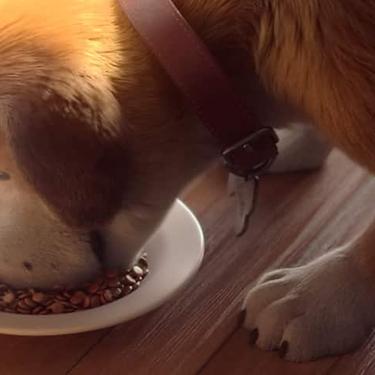
Understanding Your Dog's Metabolism
Read More
Understanding Your Overweight Cat
Read More
Understanding and Treating Dog Frostbite
Read More
Understanding the Basics of How to Build a Catio | Hill's Pet
Read More
Unlock Cat Genetics for Purrfect Health
Read More
Upper Respiratory Infections in Cats: Symptoms, Diagnosis & Treatment
Read More
Urinary Issues in Dogs: What You Need to Know
Read More
Urinary Problems & Bladder Stones in Dogs
Read More
Urinary Stress and Inappropriate Urination in Cats: How to Deal With It
Read More
Using Positive Reinforcement when Training Your Kitten
Read More
Using Your Kid's Old Toys as Homemade Cat Toys
Read More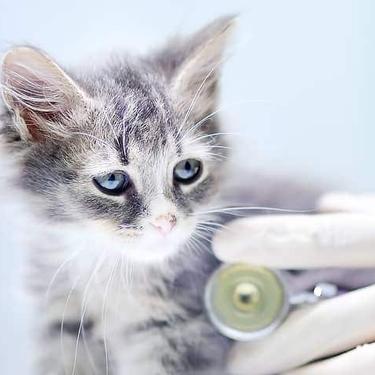
Vaccines Your Kitten Should Have
Read More
Vegan Cat Food for Carnivorous Felines?
Read More
Velcro Dogs: Managing Your Dog's Clinginess
Read More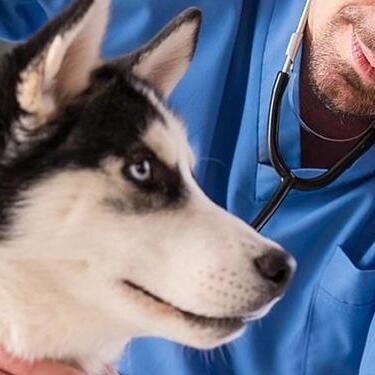
Vet Recommended Pet Food Explained
Read More
Virtual Vet Visits: What You Need to Know
Read More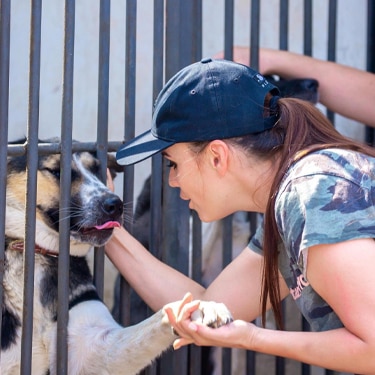
Visiting Animal Shelters: A Guide on What to Expect
Read More
Vitamins
Read More
Vitiligo in Dogs and Cats: What You Need to Know
Read More
Vizsla
Read More
Walking Big Dogs Safely: Tips and Tricks from Dog Experts
Read More
Walking a Cat: Should You Take Your Kitty For a Stroll?
Read More
Walking a Dog in the Rain: Tips for Promoting Activity While Keeping Dry
Read More
Want to Foster Cats? Here's What You Should Know
Read More
Washing Your Dog from Ear to Paw: Eight Supplies to Make It Easy
Read More
Water
Read More
Ways to Maintain Your Cat's Healthy Coat
Read More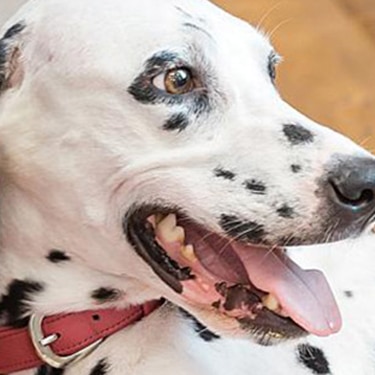
Weaning Puppies: When Can They Eat Solid Food?
Read More
Weight Control Food for Cats: Key Features and Feeding Tips
Read More
Weight Gain in Your Cat & How You Can Help
Read More
Weight Loss Goals & How Your Dog Can Help
Read More
Weight Management Dog Food: Balanced Nutrition for Dogs
Read More
Weight Reduction Dog Food and Exercise Tips for a Healthy Weight
Read More
Weimaraner
Read More
Welsh Springer Spaniel
Read More
West Highland White Terrier
Read More
Wet vs. Dry Cat Food: Which Is Best?
Read More
Wet vs. Dry Dog Food: Which Is Right for Your Pet?
Read More
What Cat Poop Color and Other Characteristics Can Tell You
Read More
What Causes Cat and Dog Insomnia?
Read More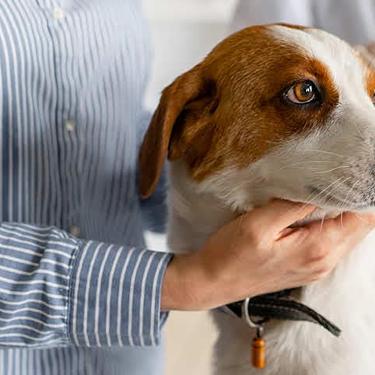
What Causes a Heart Murmur in Dogs?
Read More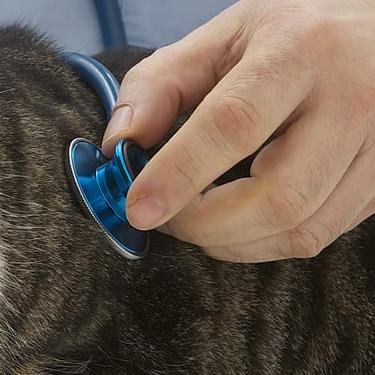
What Do Veterinary Technicians & Nurses Do?
Read More
What Does Dog Pointing Mean?
Read More
What Does My Puppy's Behavior Mean?
Read More
What Dog Breed is Best for My Cat?
Read More
What Happens When My Dog is in Heat?
Read More
What Happens When a Dog Drinks Alcohol?
Read More
What Human Food Does to Your Pet: Human Caloric Equivalents
Read More
What Is Cat Chirping and Why Do Cats Do It?
Read More
What Is Cat Nuzzling?
Read More
What Is Collie Eye Anomaly?
Read More
What Is Dog Yoga? (& How to Do it With My Dog)
Read More
What Is FIV in Cats?
Read More
What Is Heartworm in Cats? Symptoms, Diagnosis & Prevention
Read More
What Is Laser Therapy for Dogs?
Read More
What Is My Cat's Body Language Telling Me?
Read More
What Is a Cat's Primordial Pouch?
Read More
What Is a Munchkin Cat?
Read More
What Is the Best Couch & Furniture Material for Cats?
Read More
What Is the Cost of Owning a Dog?
Read More
What Is Littermate Syndrome? Pet Adoption Guide
Read More
What Painkillers Are Safe for Dogs?
Read More
What Should I Do With My Pet When I Travel?
Read More
What Should I Do for a Dog with a Splinter?
Read More
What Temperature Do Cats Like?
Read More
What Types of Litter, Food & Supplies Are Safe for Kittens?
Read More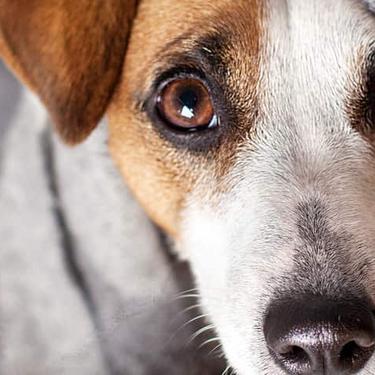
What You Need for a Pet Disaster Plan
Read More
What You Should Know About Cat Sneezing
Read More
What You Should Know About Pet Food Calories
Read More
What Your Dog is Trying to Tell You
Read More
What are the signs of food allergies?
Read More
What are the visible signs of aging in cats?
Read More
What do animal shelters do?
Read More
What is My Dog Thinking About?
Read More
What is Styptic Powder for Dogs & Cats?
Read More
What is the Best Time of Year to Adopt a Dog?
Read More
What to Consider Before You Adopt a Cat
Read More
What to Do for a Dog or Cat Tail Injury
Read More
What to Do if Your Cat is Choking
Read More
What to Do if Your Dog Eats a Dead Bird
Read More
What to Do if Your Dog is Lost or Missing
Read More
What to Expect After a Pet Cancer Diagnosis
Read More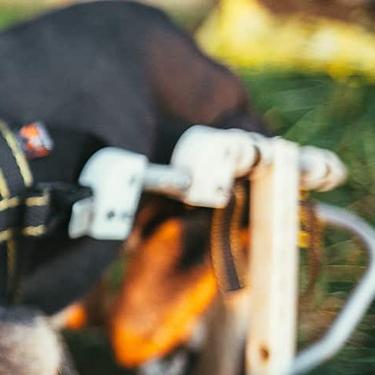
What to Expect When Adopting a Three-Legged Pet
Read More
What to Expect at Your Kitten's 6-Month Health Check
Read More
What to Expect at Your Puppy's 6-Month Health Check
Read More
What to Feed Your Pregnant or Nursing Dog
Read More
What to Look For in Food for a Mature Dog
Read More
What's Behind My Cat's Weird Behaviors?
Read More
What's My Dog Doing When I'm Not Home?
Read More
What's a Normal Cat Temperature? Tips for Checking Your Cat's Vitals
Read More
What's the Best Large Breed Dog Food?
Read More
When Are Cats Full-Grown?
Read More
When Do Kittens Open Their Eyes?
Read More
When Does My Puppy Become an Adult Dog?
Read More
When Does a Cat's Play Aggression Cross the Line?
Read More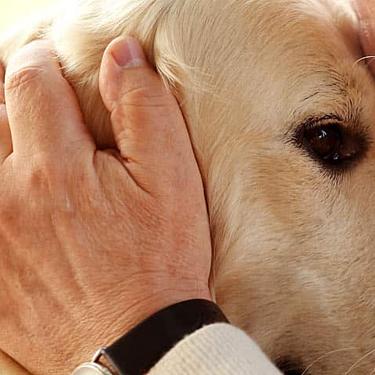
When Should You Consider Putting a Pet Down?
Read More
When Should a Dog Be Spayed?
Read More
When You Should Be Concerned About Your Dog's Dry Nose
Read More
When is a Puppy an Adult Dog?
Read More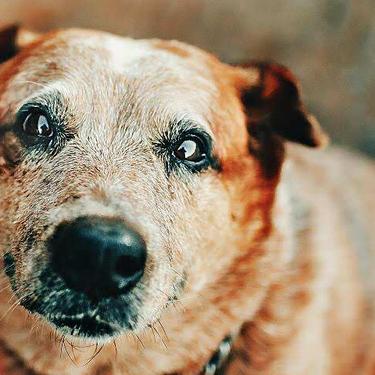
When to Euthanize a Dog With Cancer
Read More
When to Let Your Puppy Outside
Read More
Where Can I Get a Dog or a Puppy?
Read More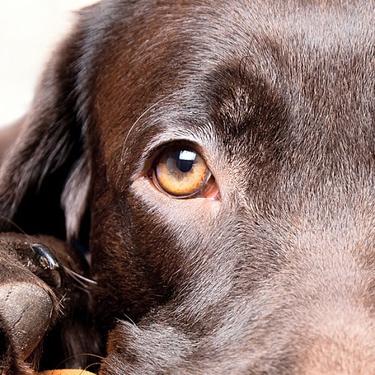
Where Does Your Pup's Bad Behavior Come From?
Read More
Which Dog Dry Nose Treatment Should You Use When?
Read More
Whippet
Read More
Whipworms in Dogs: Signs, Treatment and Prevention
Read More
Why Adopting a Free Kitten Isn't Always a Good Idea
Read More
Why Are Adopted Cats Returned to Shelters?
Read More
Why Are Dogs Scared of Vacuums?
Read More
Why Are Dogs and Cats So Cute?
Read More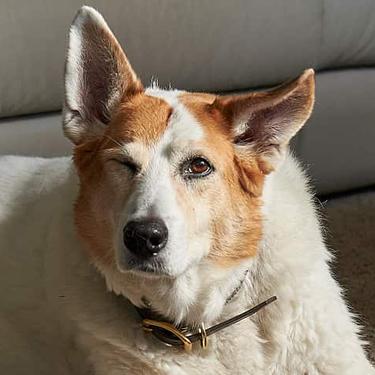
Why Are My Dog's Eyes Red?
Read More
Why Cats Groom Themselves
Read More
Why Cats Like to Pounce
Read More
Why Do Cats Bite While Playing?
Read More
Why Do Cats Bunny Kick?
Read More
Why Do Cats Eat Grass?
Read More
Why Do Cats Hate Water?
Read More
Why Do Cats Have Whiskers?
Read More
Why Do Cats Lick Their Paws? Can it Become Excessive?
Read More
Why Do Cats Like Cardboard Boxes?
Read More
Why Do Cats Meow?
Read More
Why Do Cats Stick Their Tongue Out?
Read More
Why Do Cats Try to Eat Plastic?
Read More
Why Do Dogs Chase Cars? (& How to Get Them to Stop)
Read More
Why Do Dogs Chase Squirrels?
Read More
Why Do Dogs Hate Baths? (& Tips for Bathing a Scared Dog)
Read More
Why Do Dogs Howl?
Read More
Why Do Dogs Lick Their Butts?
Read More
Why Do Dogs Like Belly Rubs? (And What If My Dog Doesn't?)
Read More
Why Do Dogs Need to Pee on Everything?
Read More
Why Do Dogs Paws Smell Like Corn Chips?
Read More
Why Do Dogs Sniff Each Other's Butts?
Read More
Why Do Female Dogs Hump Things?
Read More
Why Do Sirens Make a Dog Howl?
Read More
Why Do Small Dog Breeds Live Longer?
Read More
Why Do a Cat's Eyes Glow?
Read More
Why Does My Cat Attack My Feet?
Read More
Why Does My Cat Keep Unrolling Toilet Paper?
Read More
Why Does My Cat Walk on Me?
Read More
Why Does My Cat Yowl at Night?
Read More
Why Does My Dog Cover Their Face?
Read More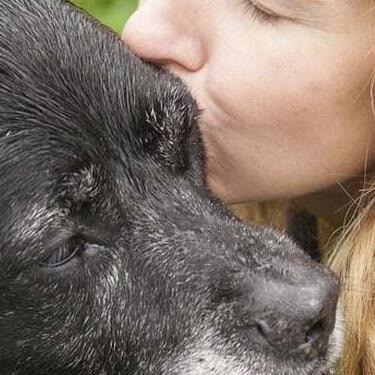
Why Does My Dog Eat Everything on Walks?
Read More
Why Does My Dog Eat Grass?
Read More
Why Does My Dog Eat Poop?
Read More
Why Does My Dog Eat So Fast?
Read More
Why Does My Dog Keep Burying Stuff?
Read More
Why Does My Dog Look So Sad?
Read More
Why Does My Dog Sigh?
Read More
Why Dogs Roll in Poop (and Other Smelly Things)
Read More
Why Dogs Throw Up After Eating
Read More
Why Exercise is Important to Keep Your Cat Healthy
Read More
Why Fiber is Important for Your Dog's Health
Read More
Why Is My Cat Eating Litter?
Read More
Why Is My Cat Limping?
Read More
Why Is My Cat Peeing Blood?
Read More
Why Is My Cat Shaking and Shivering?
Read More
Why Is My Cat Vomiting Blood?
Read More
Why Is My Dog Afraid of the Dark?
Read More
Why Is My Dog Eating Dirt?
Read More
Why Is My Dog Eating Snow?
Read More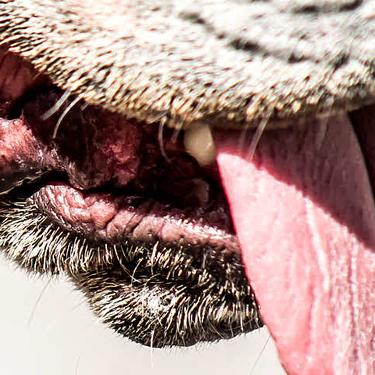
Why Is My Dog Foaming at the Mouth?
Read More
Why Is My Dog Itching?
Read More
Why Is My Dog Losing Hair?
Read More
Why Is My Dog Not Peeing?
Read More
Why Is My Dog Rubbing Their Nose Raw?
Read More
Why Is My Dog Shaking? 6 Common Causes for the Shivers
Read More
Why Is My Dog Sitting on Me? Five Possible Reasons
Read More
Why Is My Dog's Muzzle Hair Turning Gray?
Read More
Why Is My Dog's Stomach Making Noises?
Read More
Why Regular Veterinary Visits Are Important to Your Kitten
Read More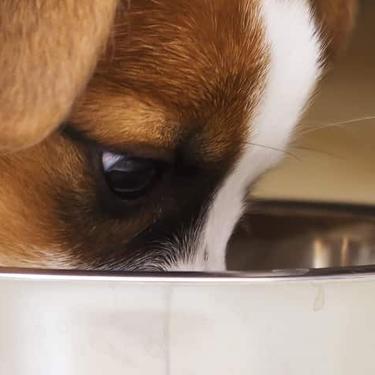
Why Science Matters in Your Dog's Food
Read More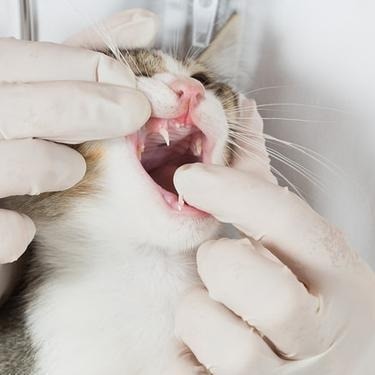
Why You Should Brush Your Cat's Teeth Regularly
Read More
Why Your Cat Likes to Hide in Small Dark Spaces
Read More
Why Your Cat Likes to Scratch
Read More
Why Your Cat Won't Use the Litter Box: Potential Causes
Read More
Why Your Cat's Nose Is Running (& How to Help)
Read More
Why Your Dog Should Exercise
Read More
Why Your Dog Won't Eat
Read More
Why Your Puppy Barks
Read More
Why Your Puppy Won't Stop Whining
Read More
Why is Fiber Important in Cat Food?
Read More
Why is My Cat's Meow Silent?
Read More
Why is My Dog Chasing Their Tail?
Read More
Why is My Kitten Crying? (& How to Help Them Stop)
Read More
Wire Fox Terrier
Read More
Worms in Dog Poop: Signs, Treatment Options & Prevention
Read More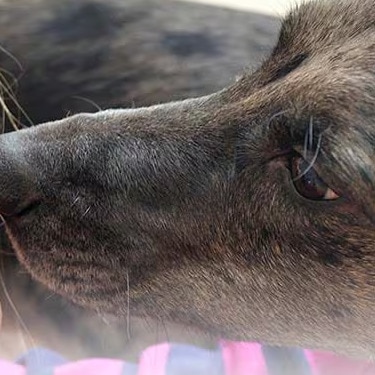
Xoloitzcuintli
Read More
Xylitol and Dogs: A Harmful Combination
Read More
Yorkshire Terrier
Read More
Your Cat Doesn't Drink Water but Eats Wet Food: Is It Enough?
Read More
Your Cat Needs Attention? Here's What She'll Do to Get It.
Read More
Your Cat in Heat: What You Need to Know
Read More
Your Cat is Always Hungry: What Should You Do?
Read More
Your Cat's First Month At Home: Tips & Suggestions
Read More
Your Dog Ate Deodorant: What You Need to Know
Read More
Your Dog in Pain: Recognizing & Relieving
Read More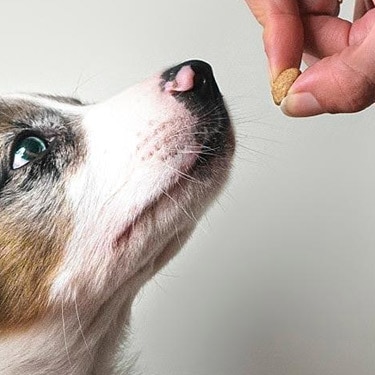
Your Puppy Training Guide: How and When to Get Started
Read More
Your Puppy's First 3 Months At Home: What to Expect
Read More
0 results found
Featured Articles by category
After years of research, experts at Hill’s have determine the gut microbiome affects not only your pet’s digestive health but their overall health.








